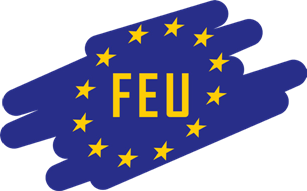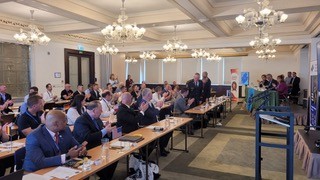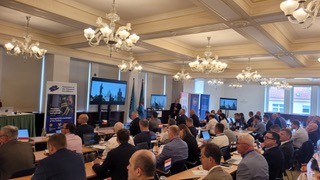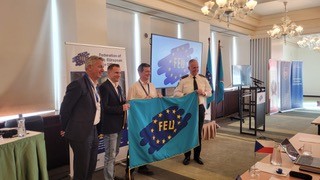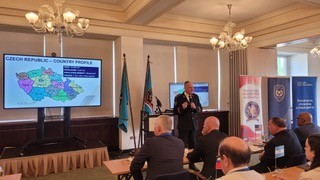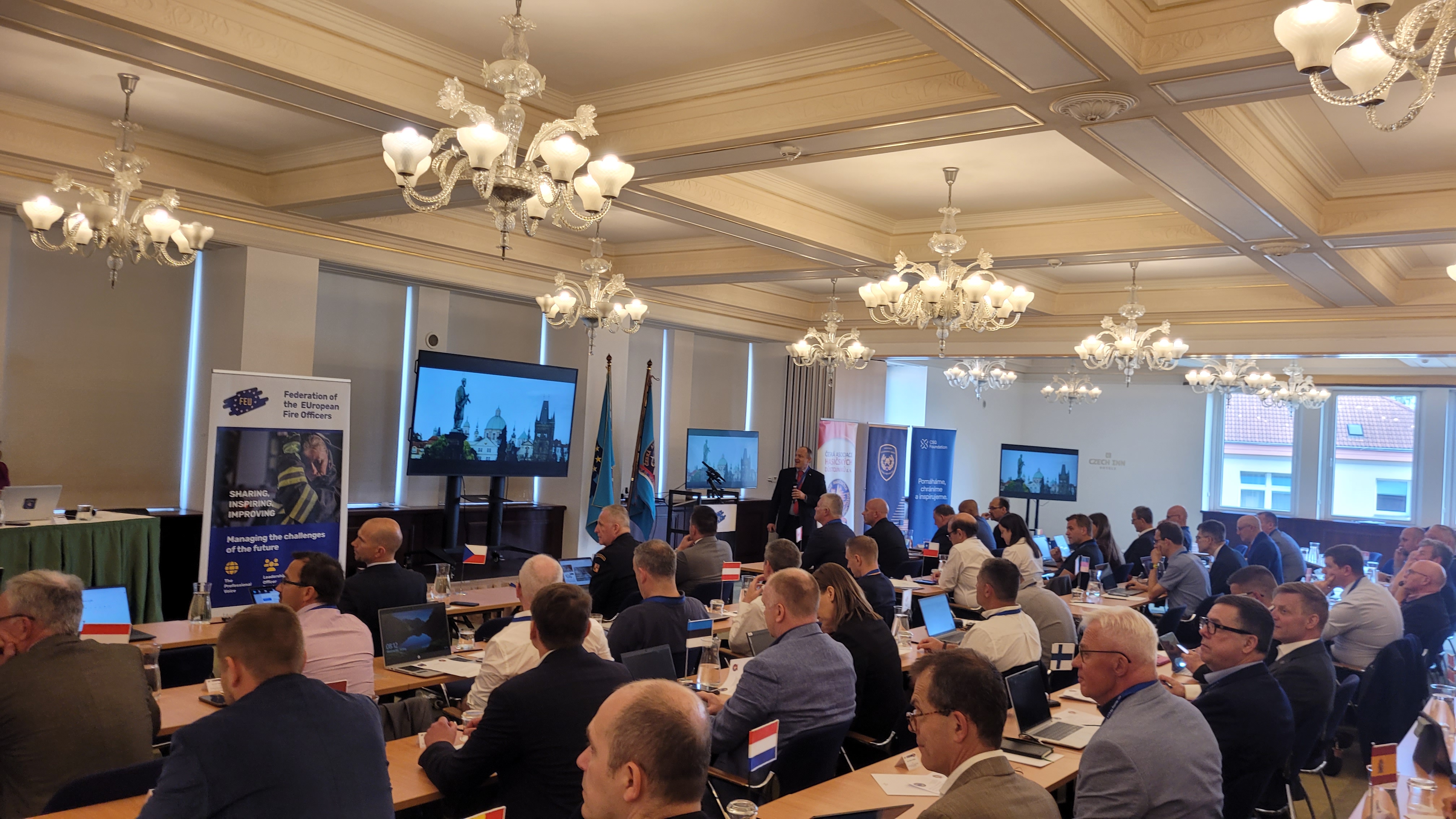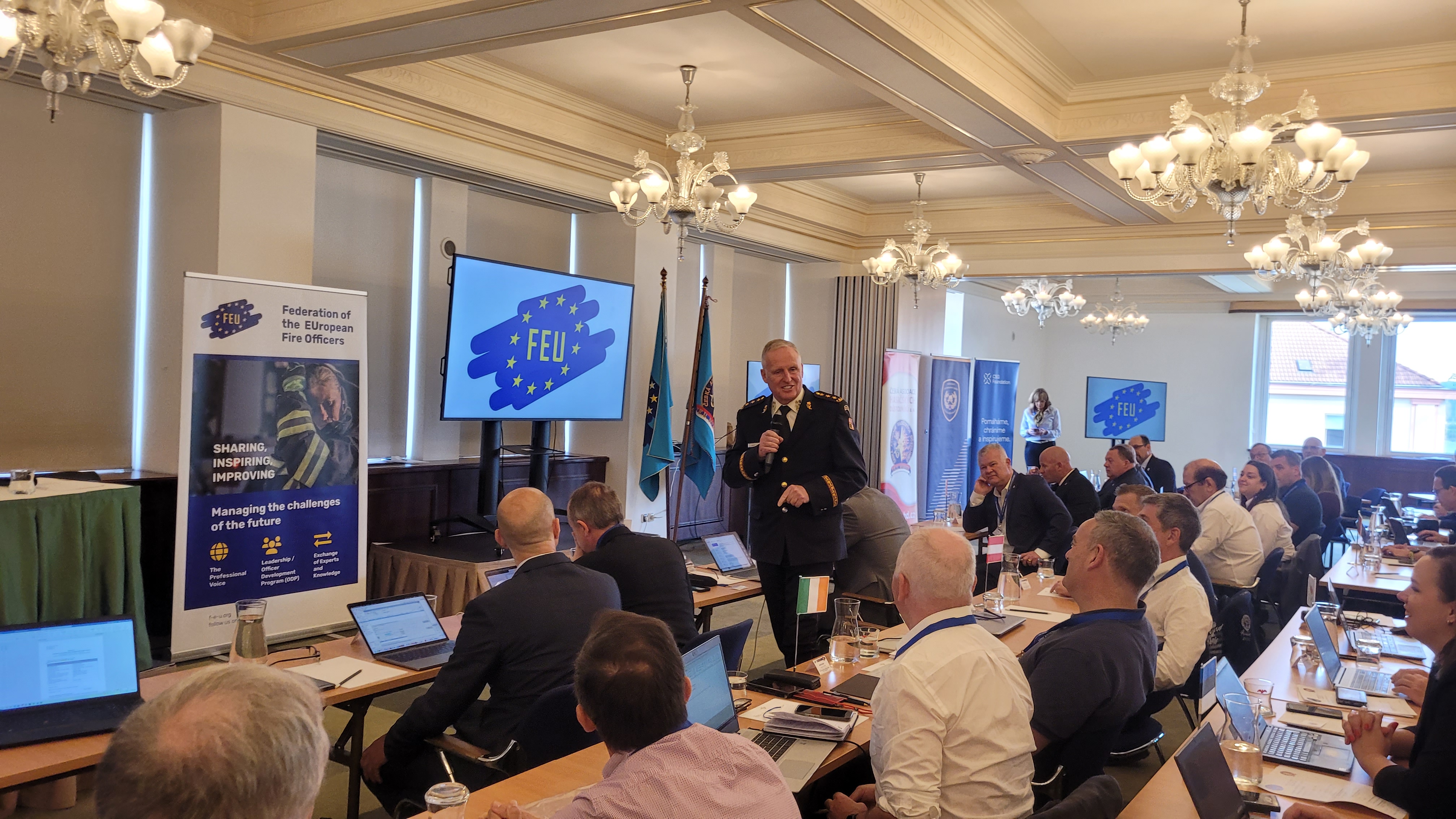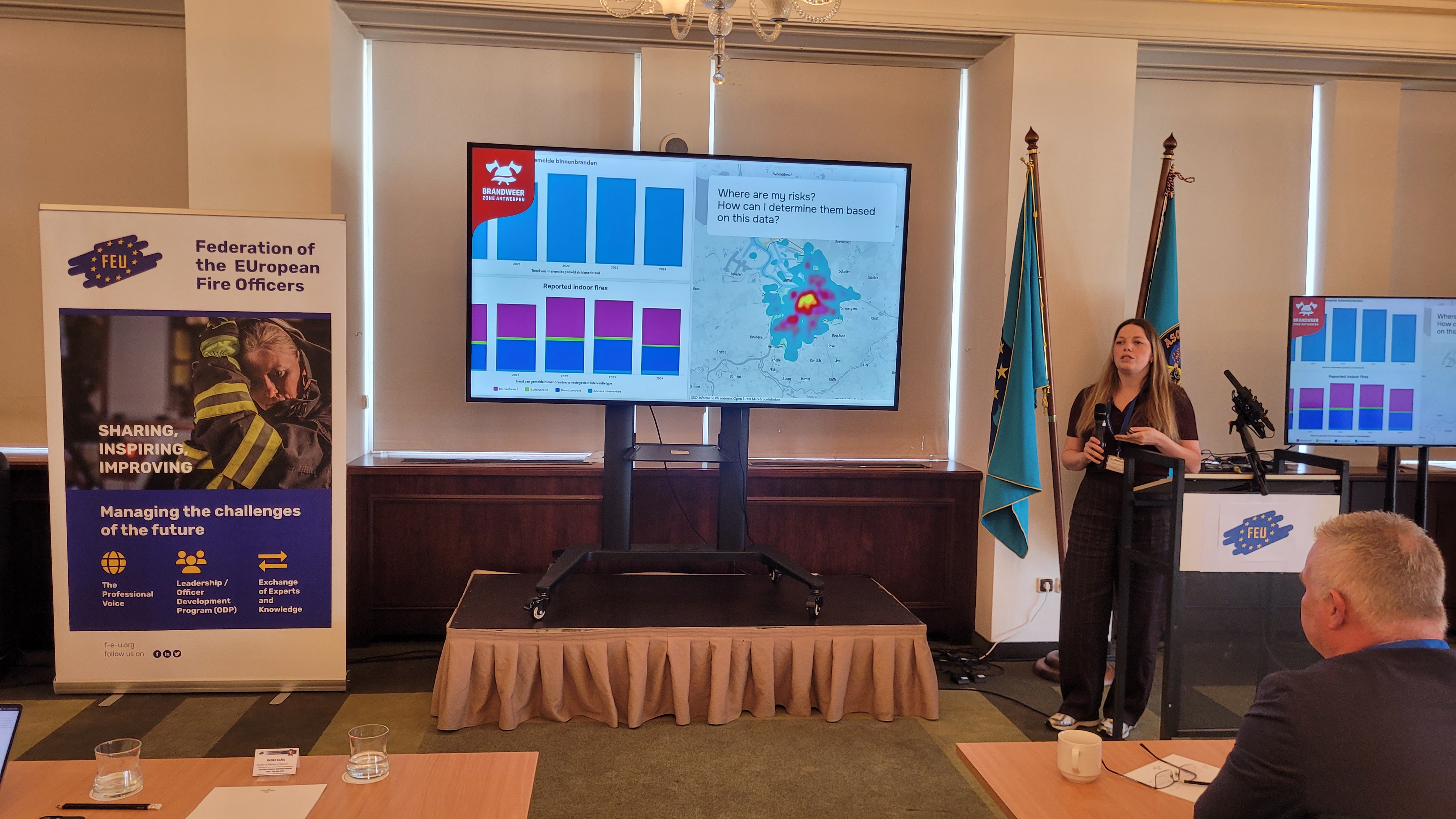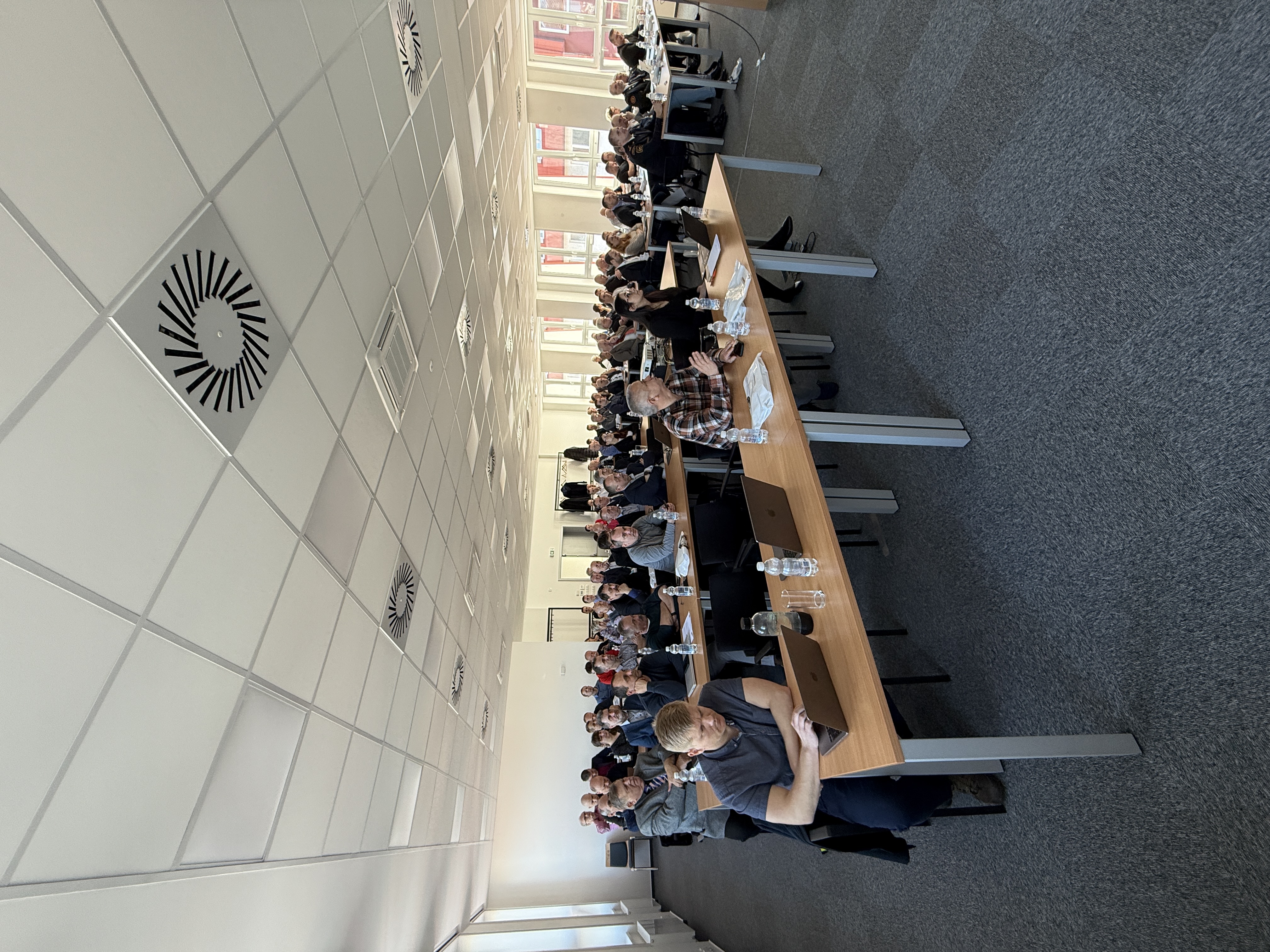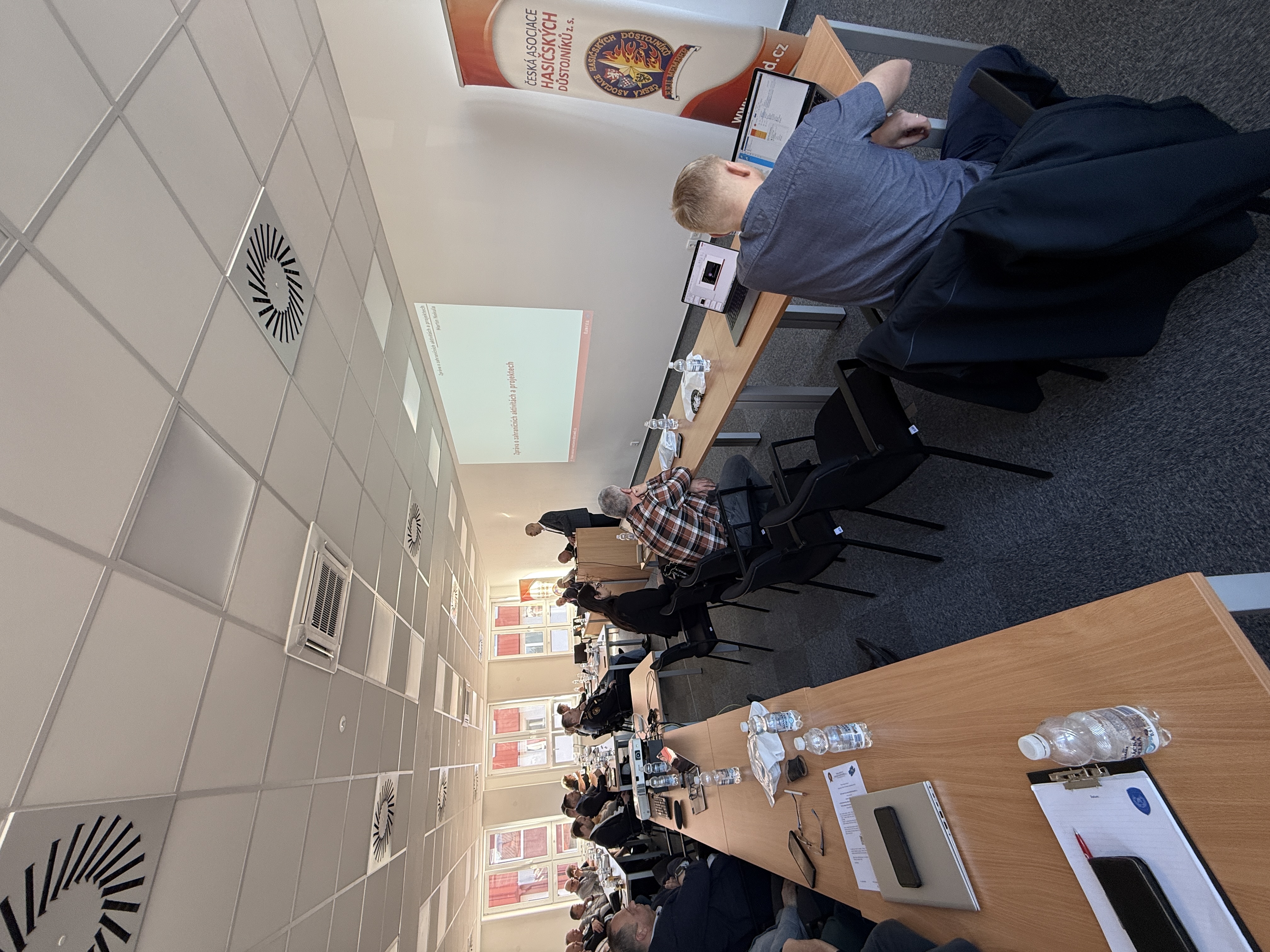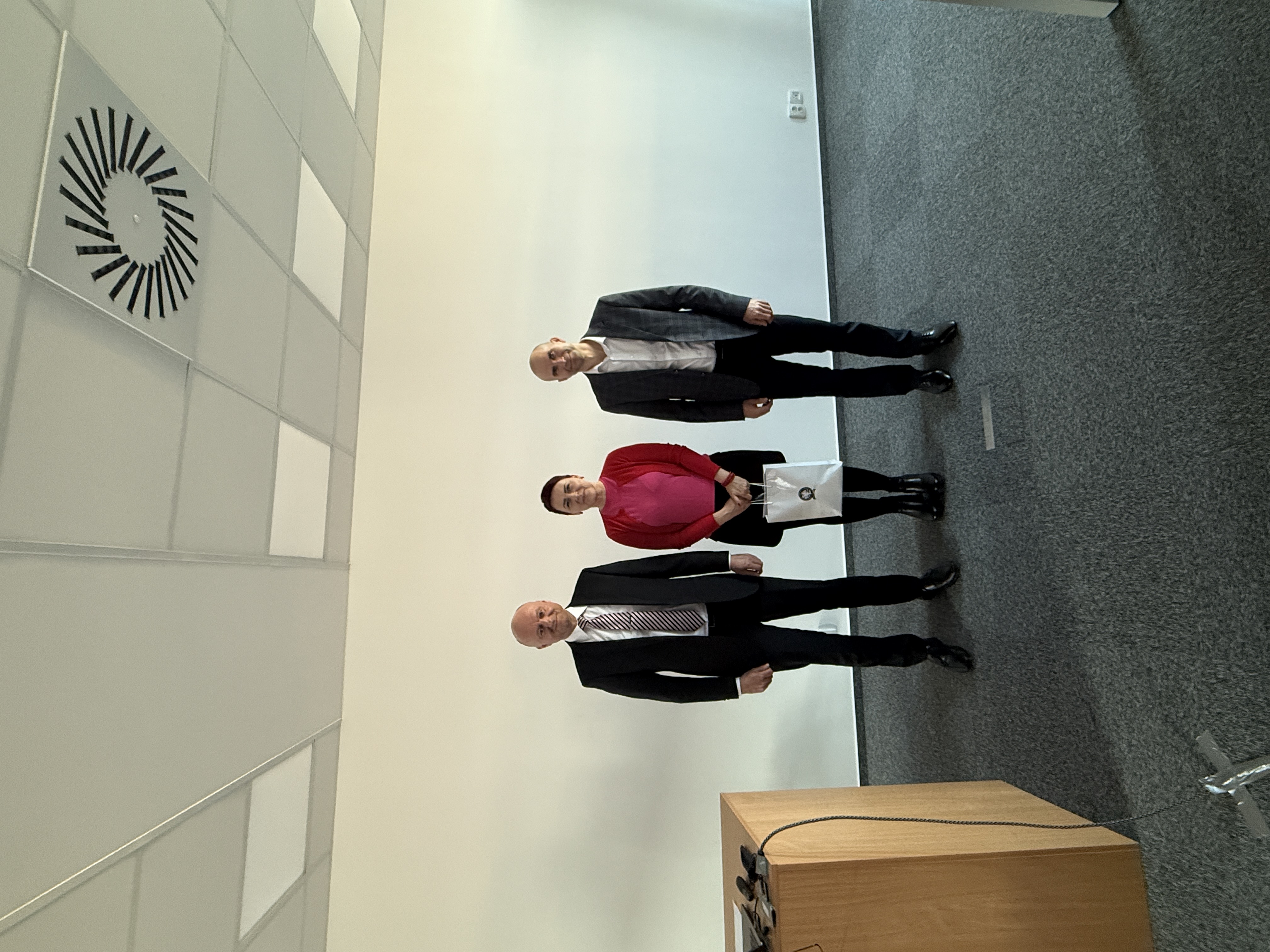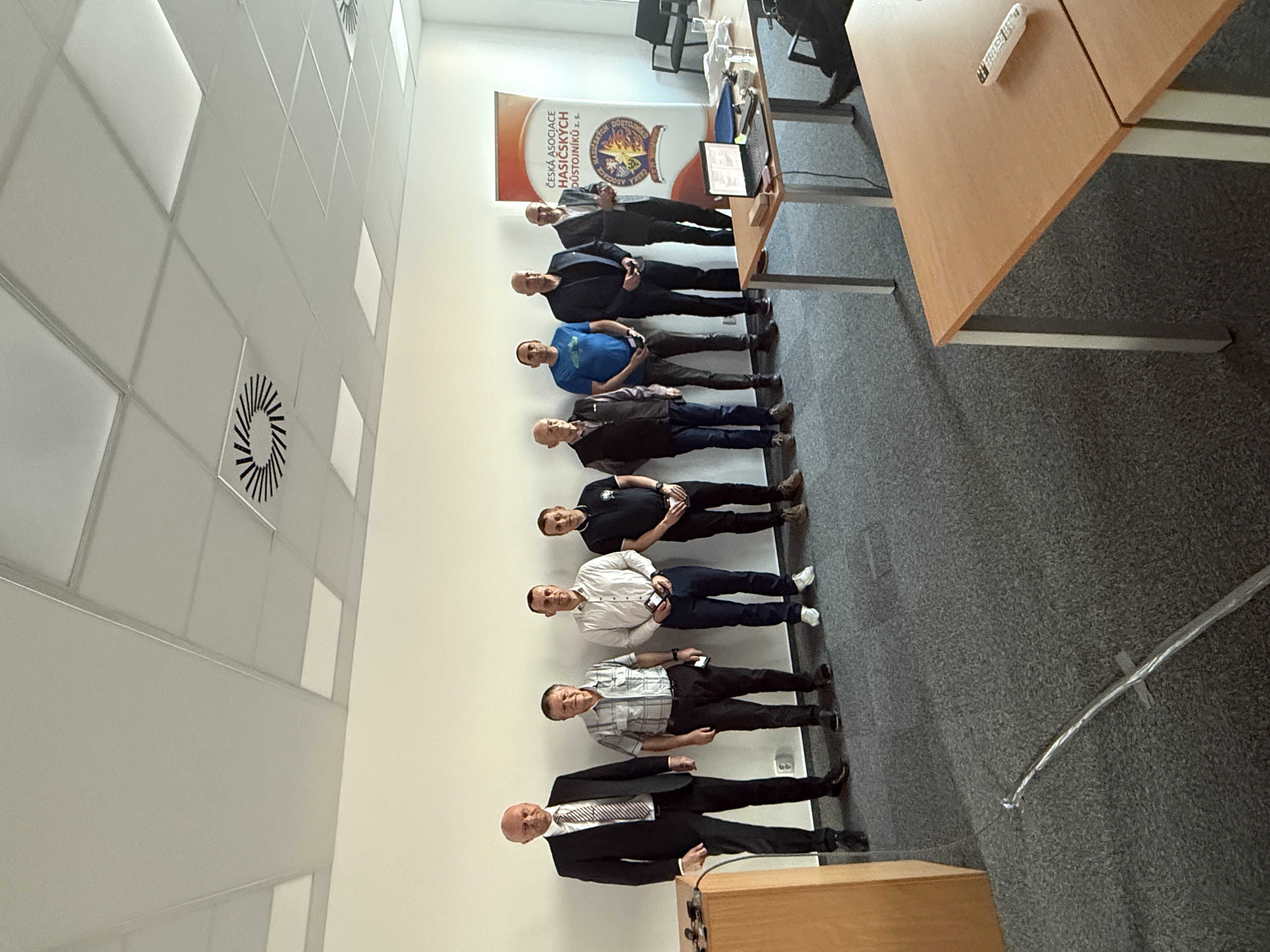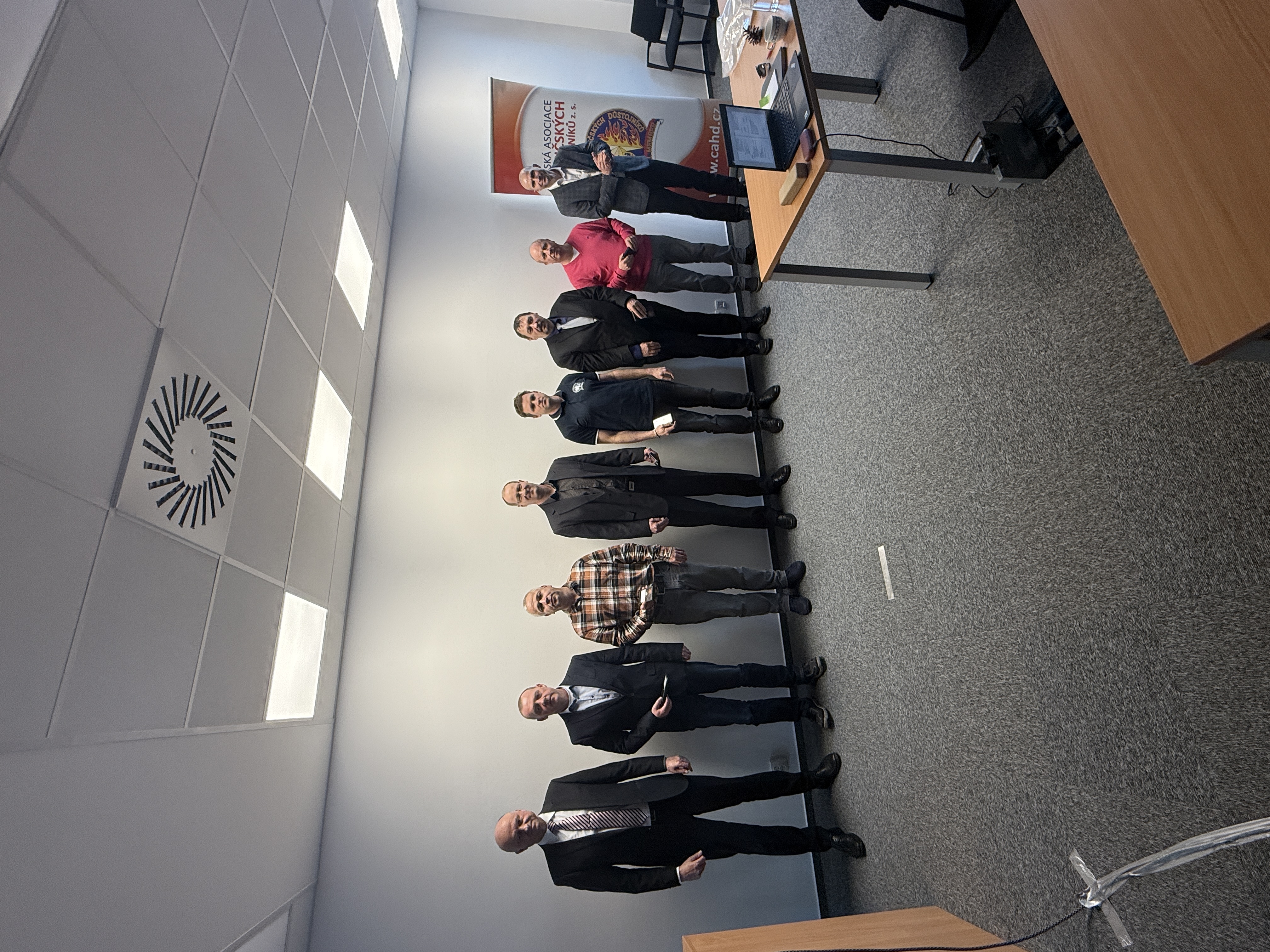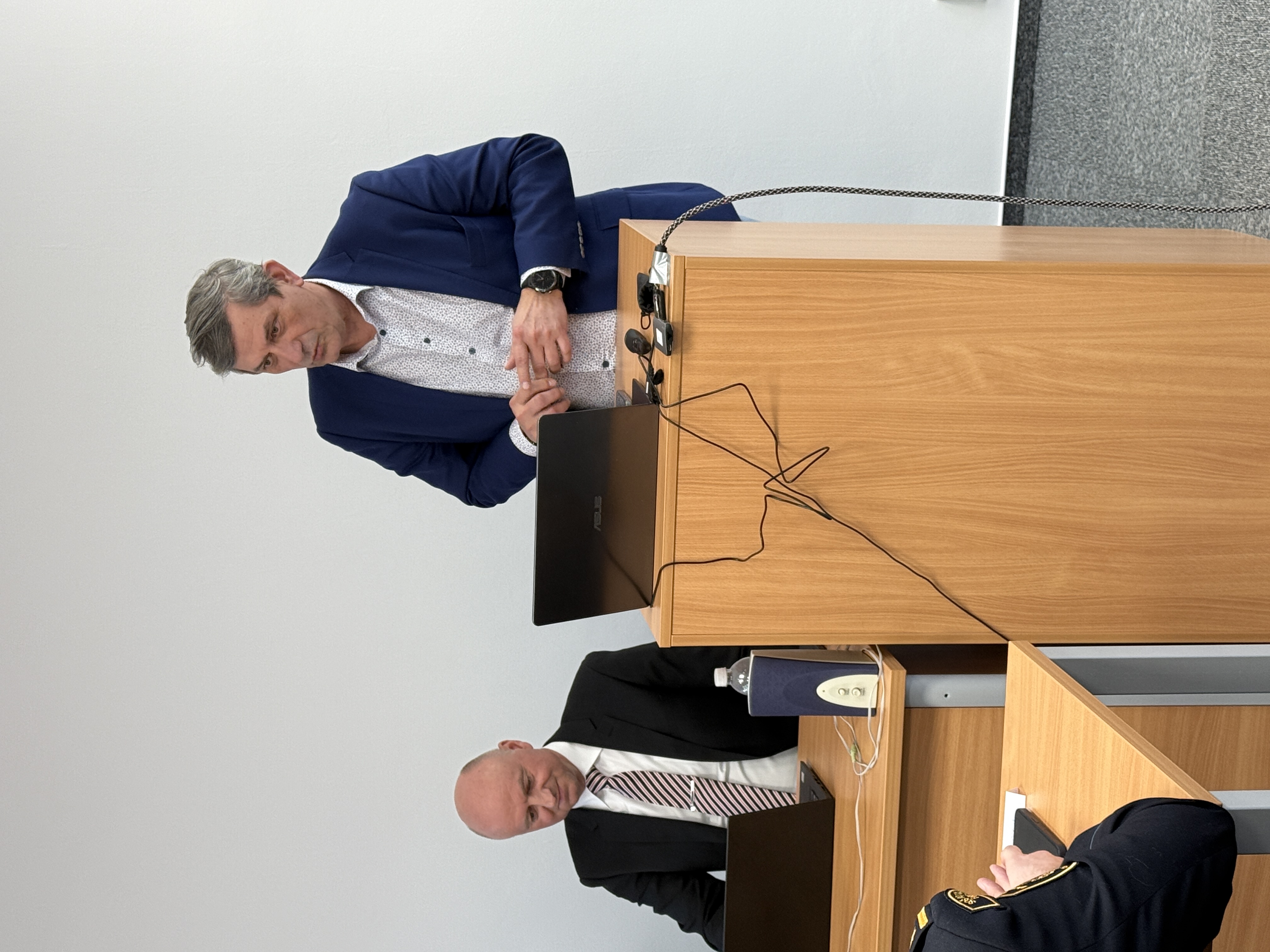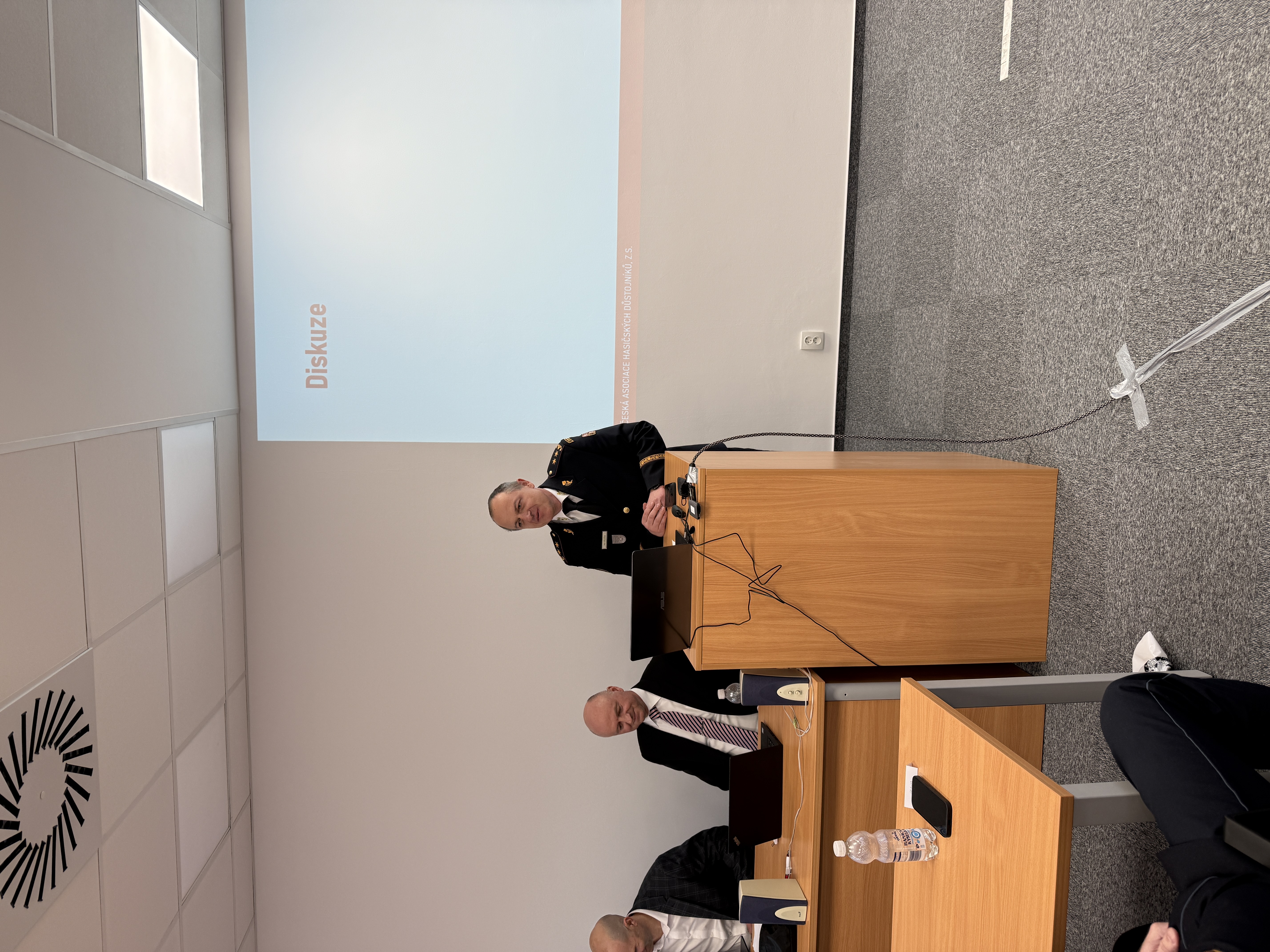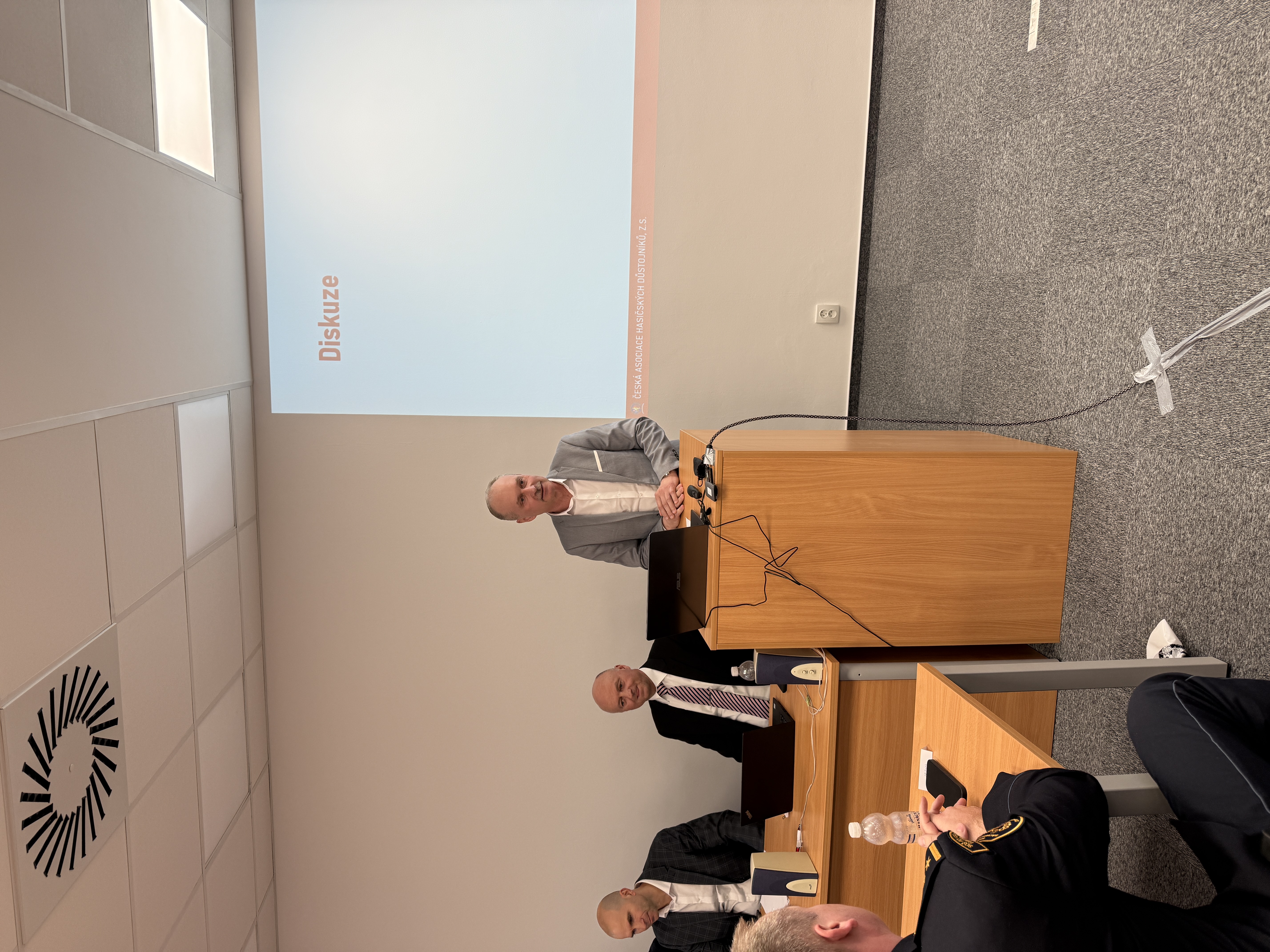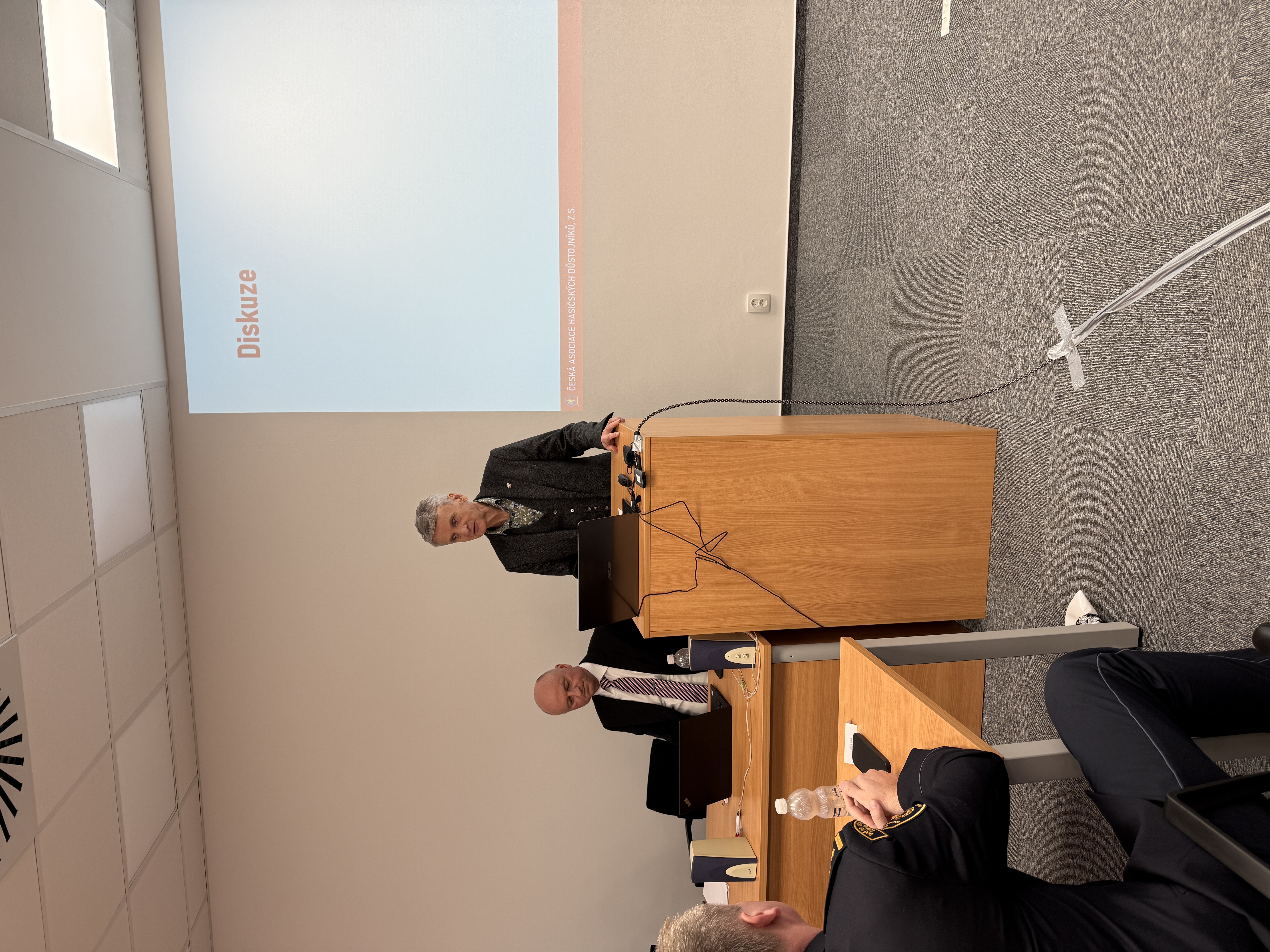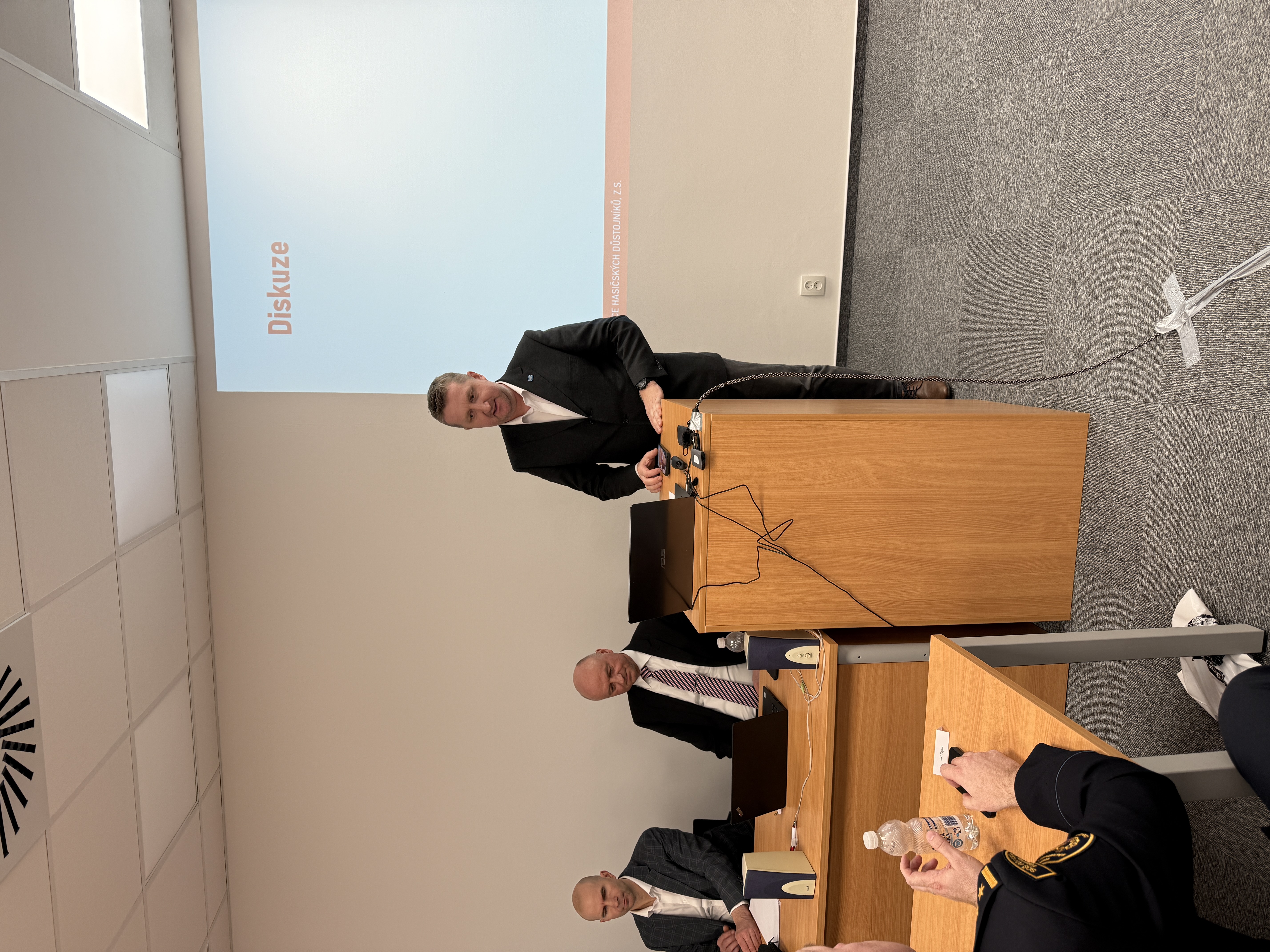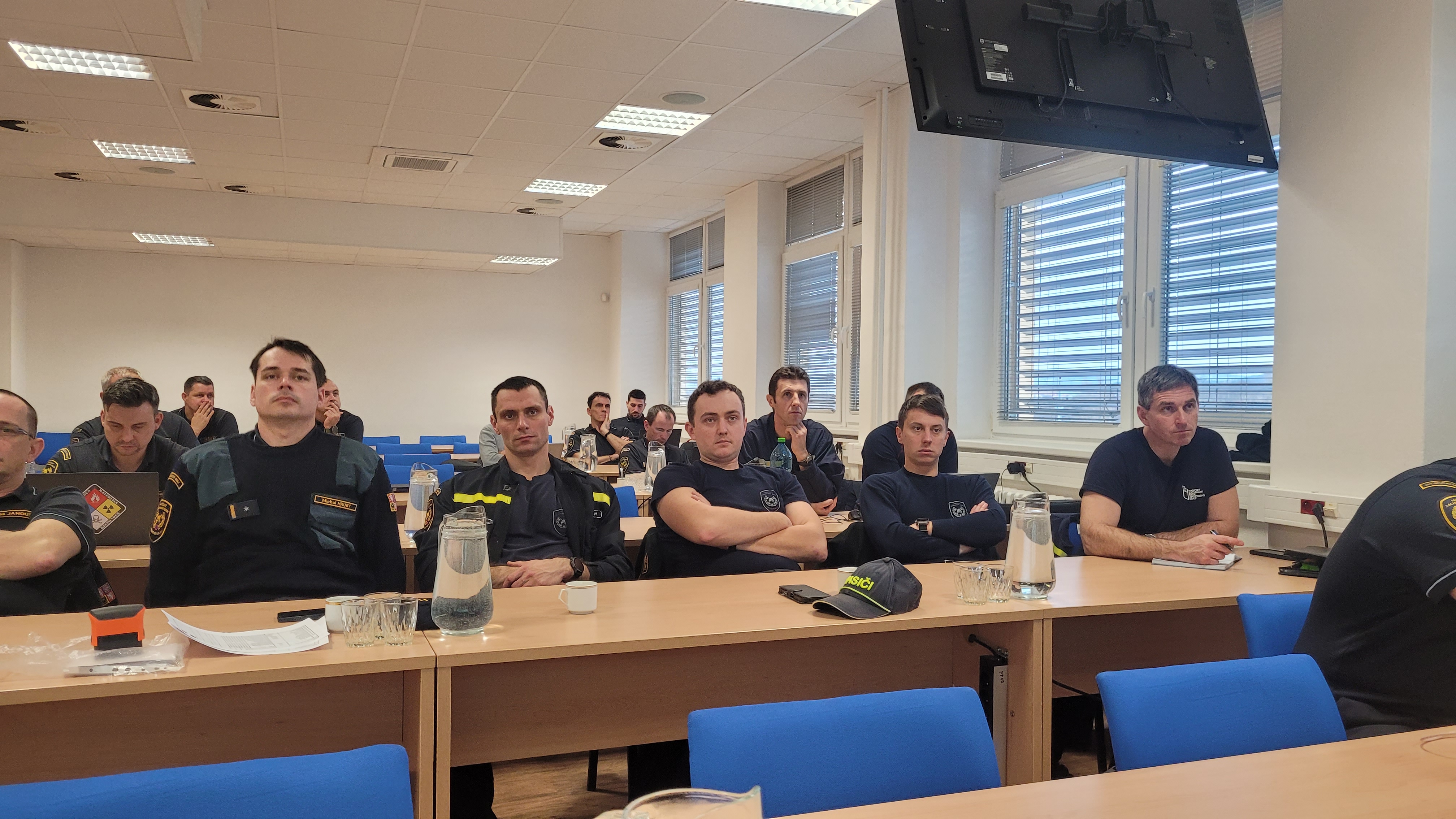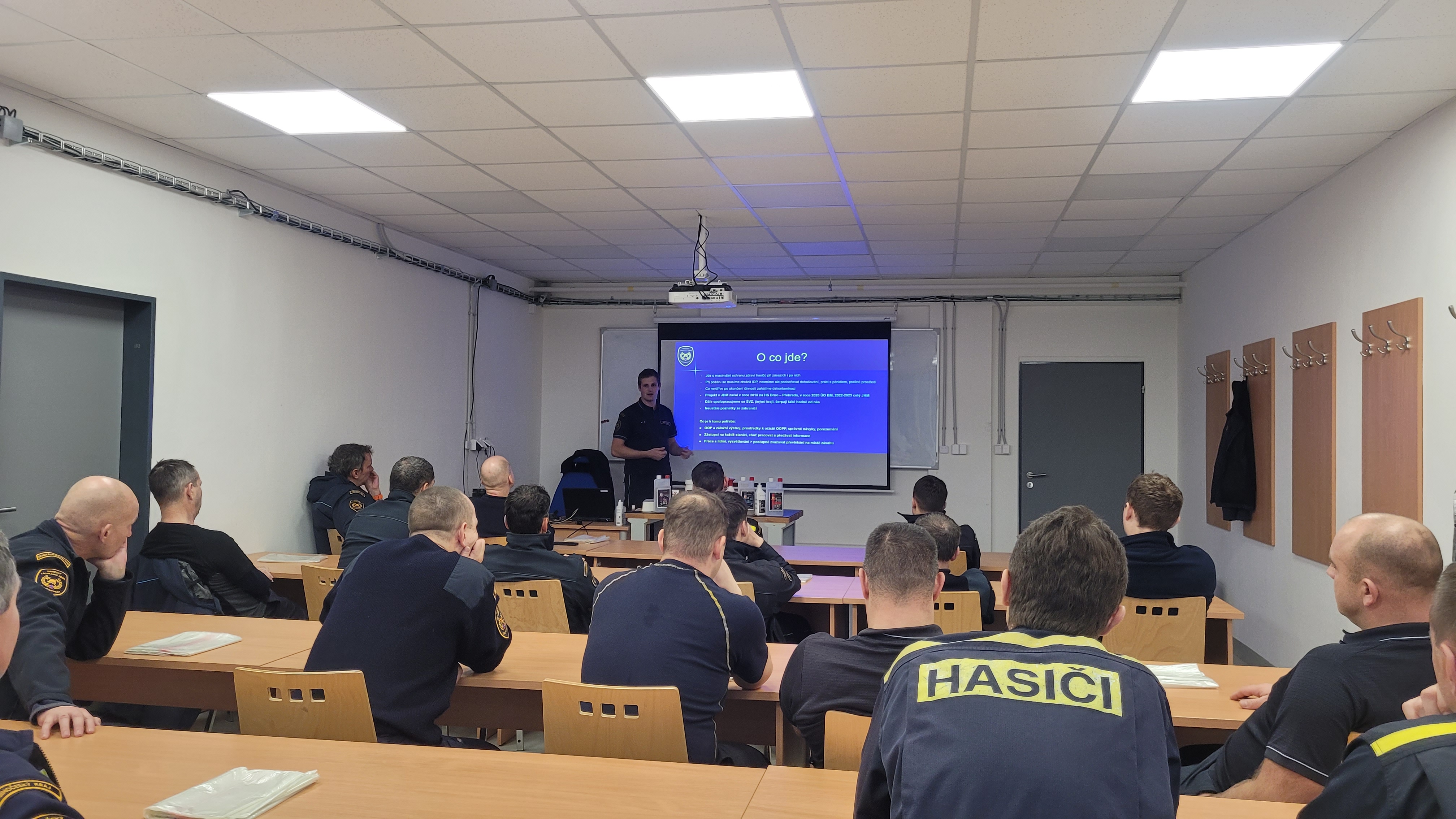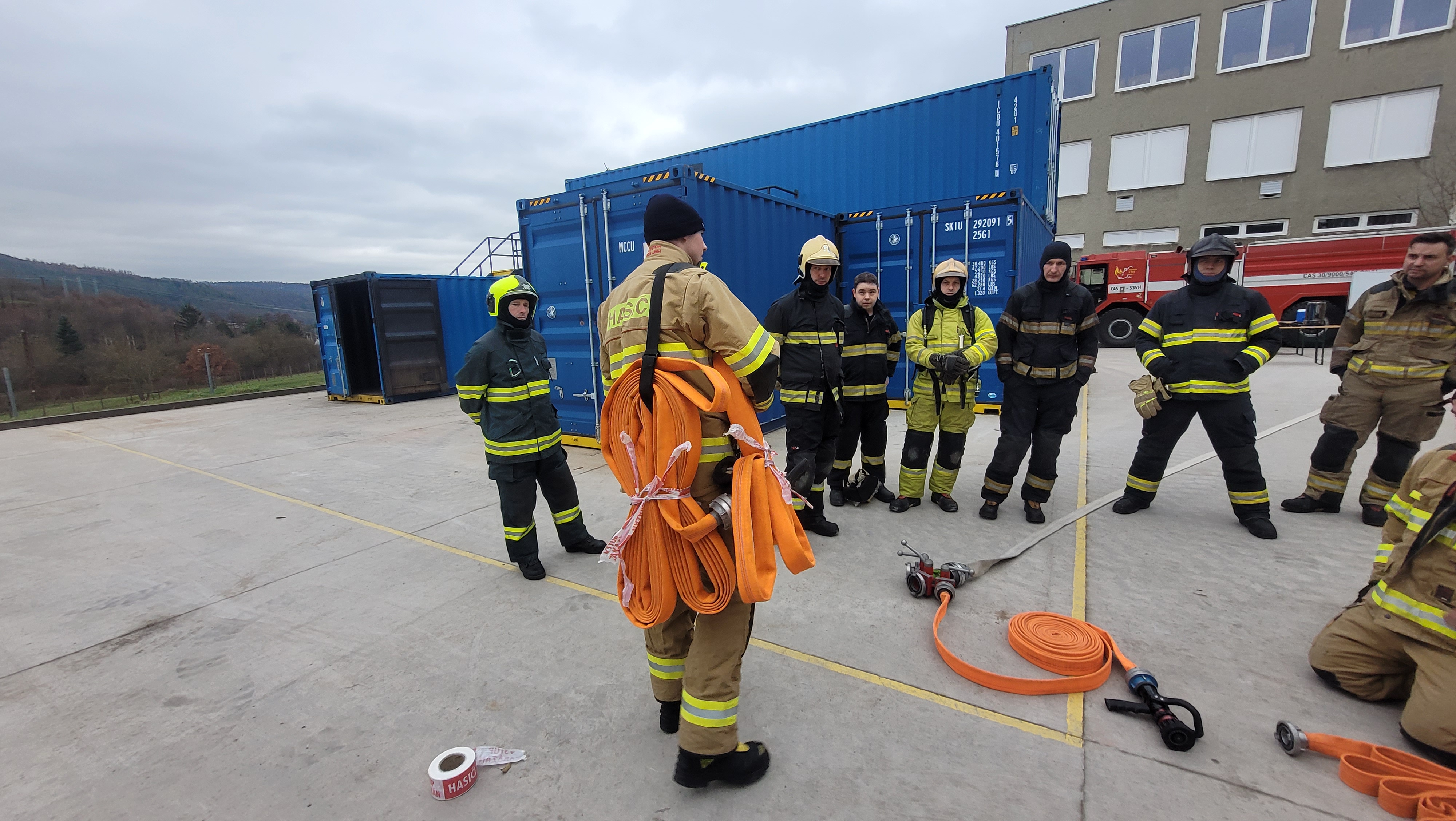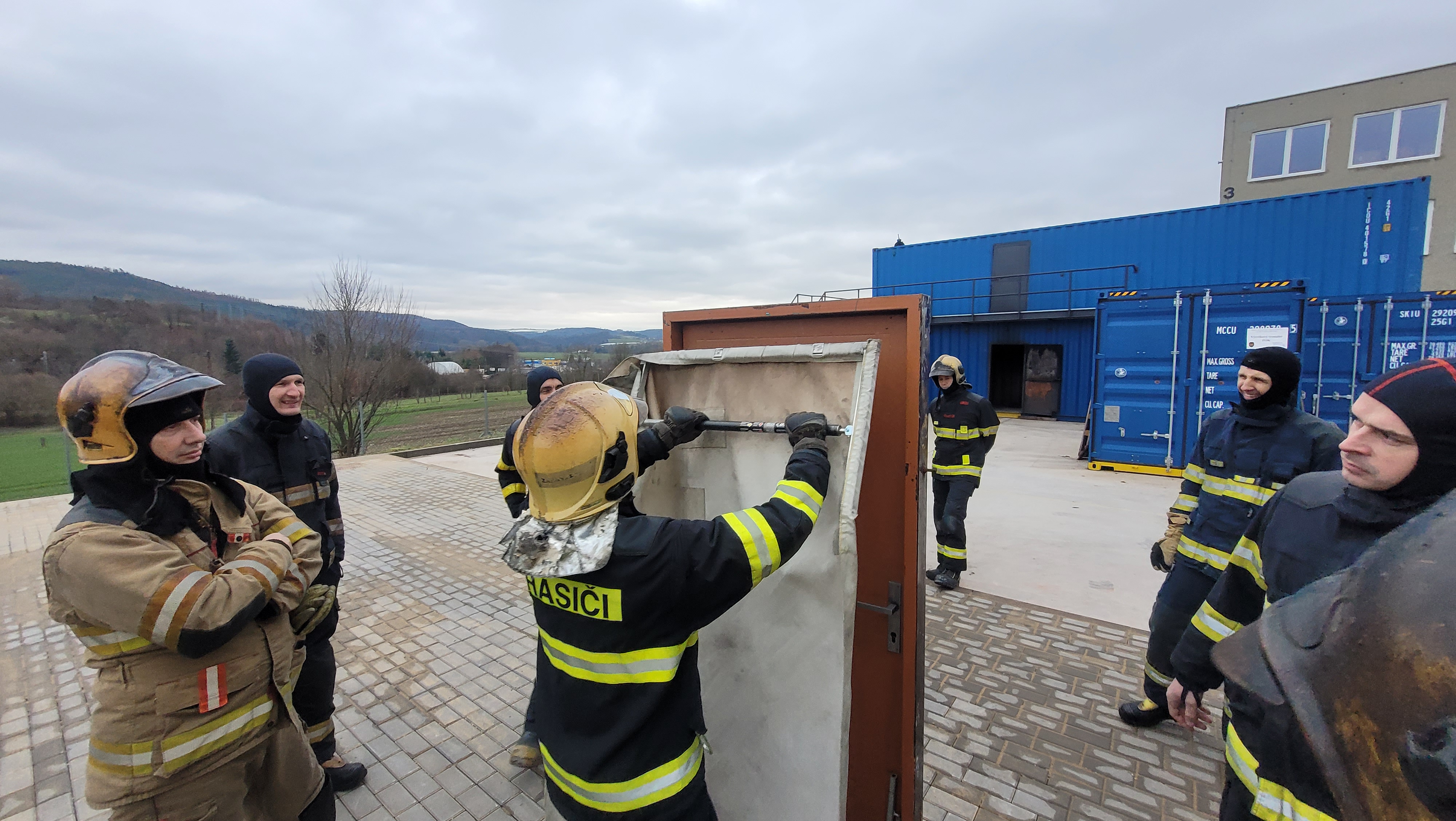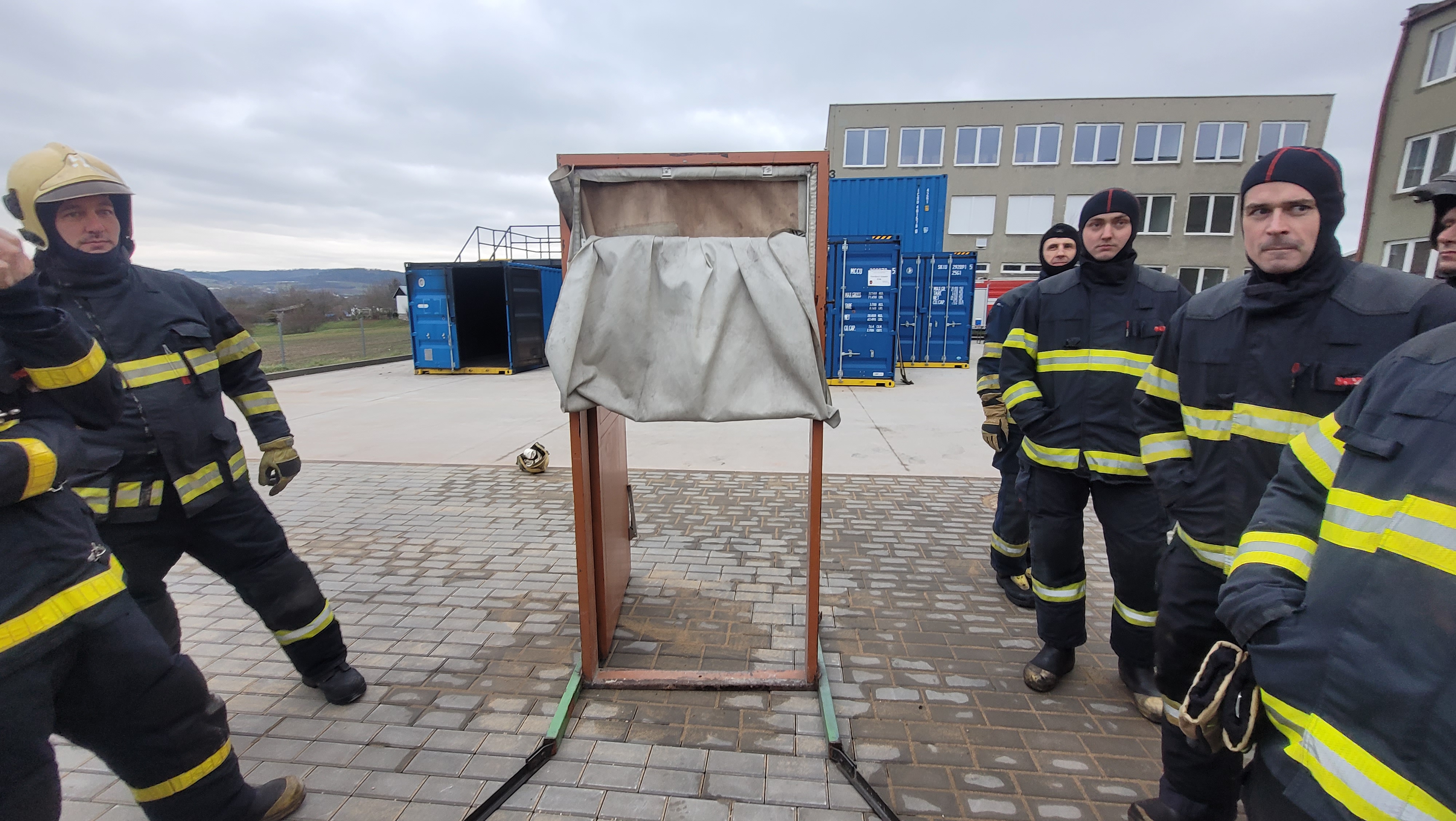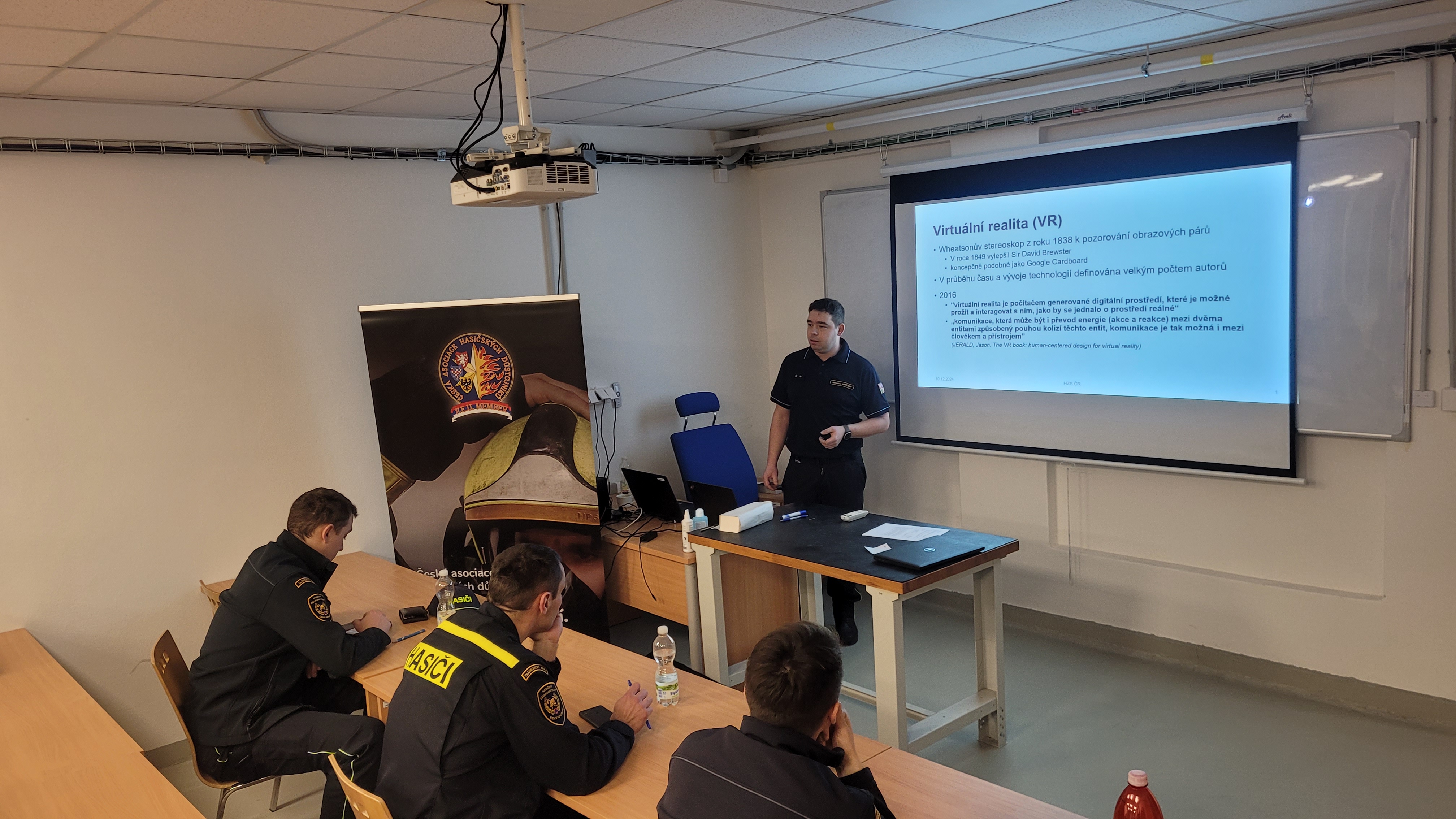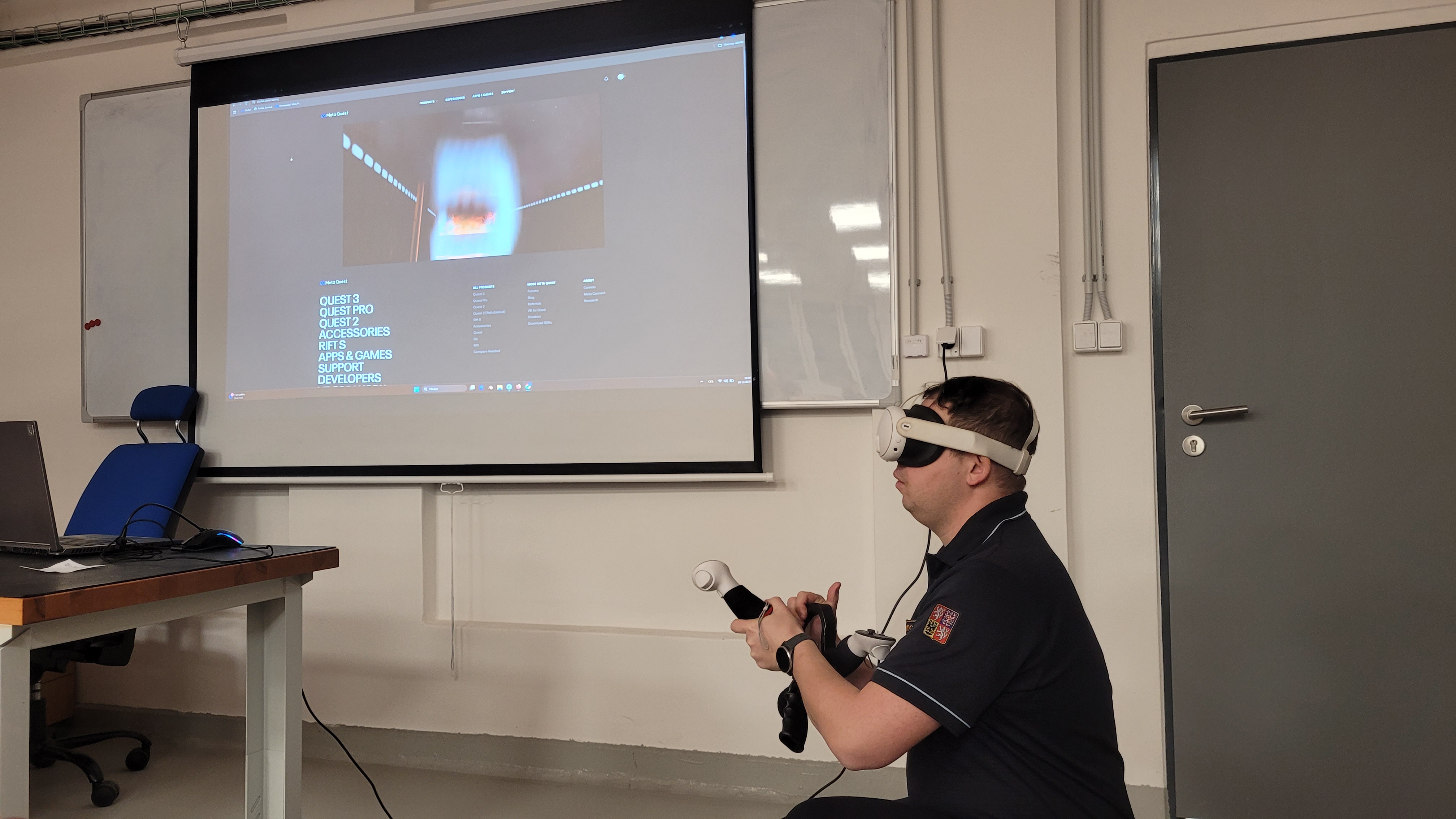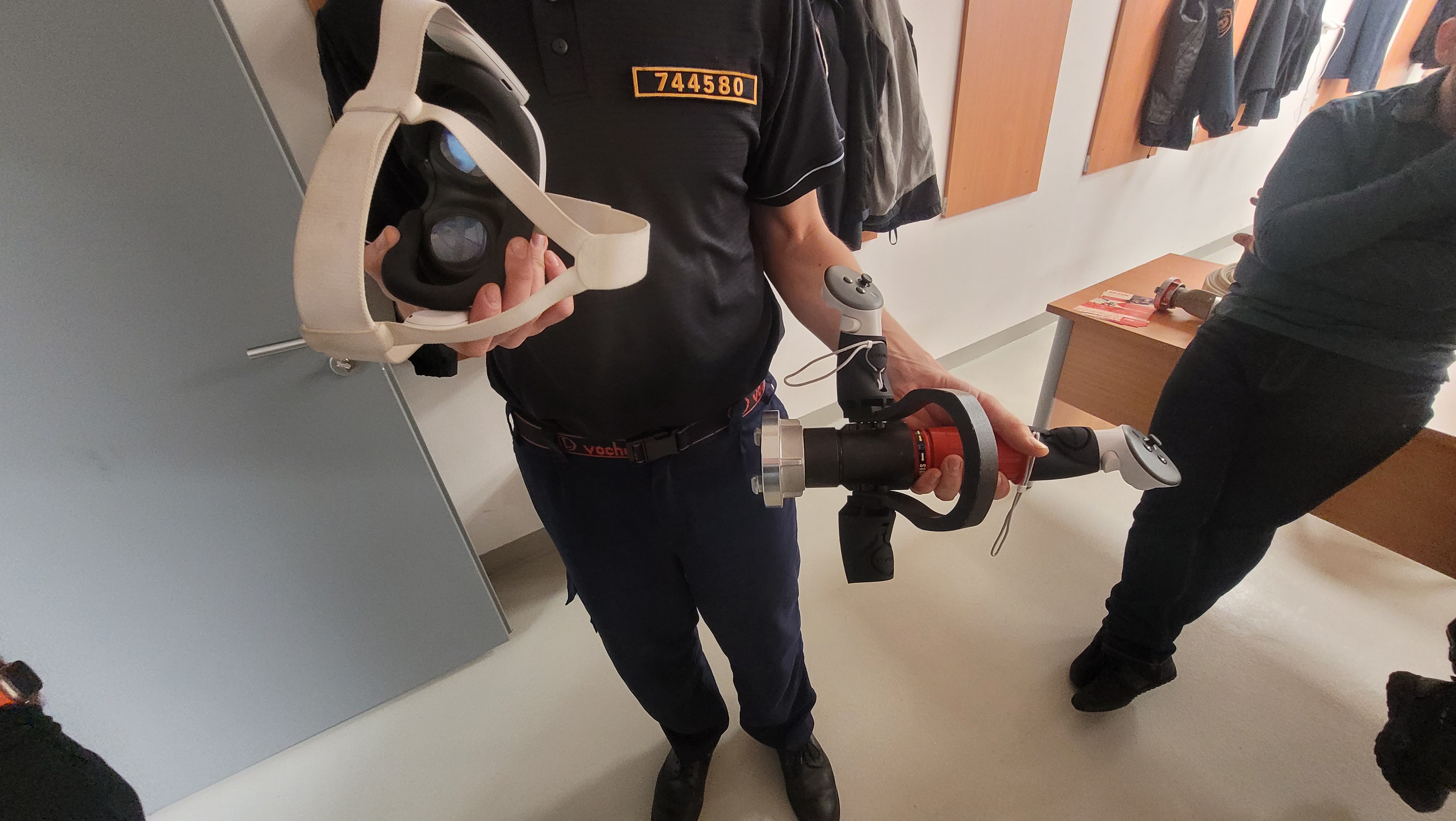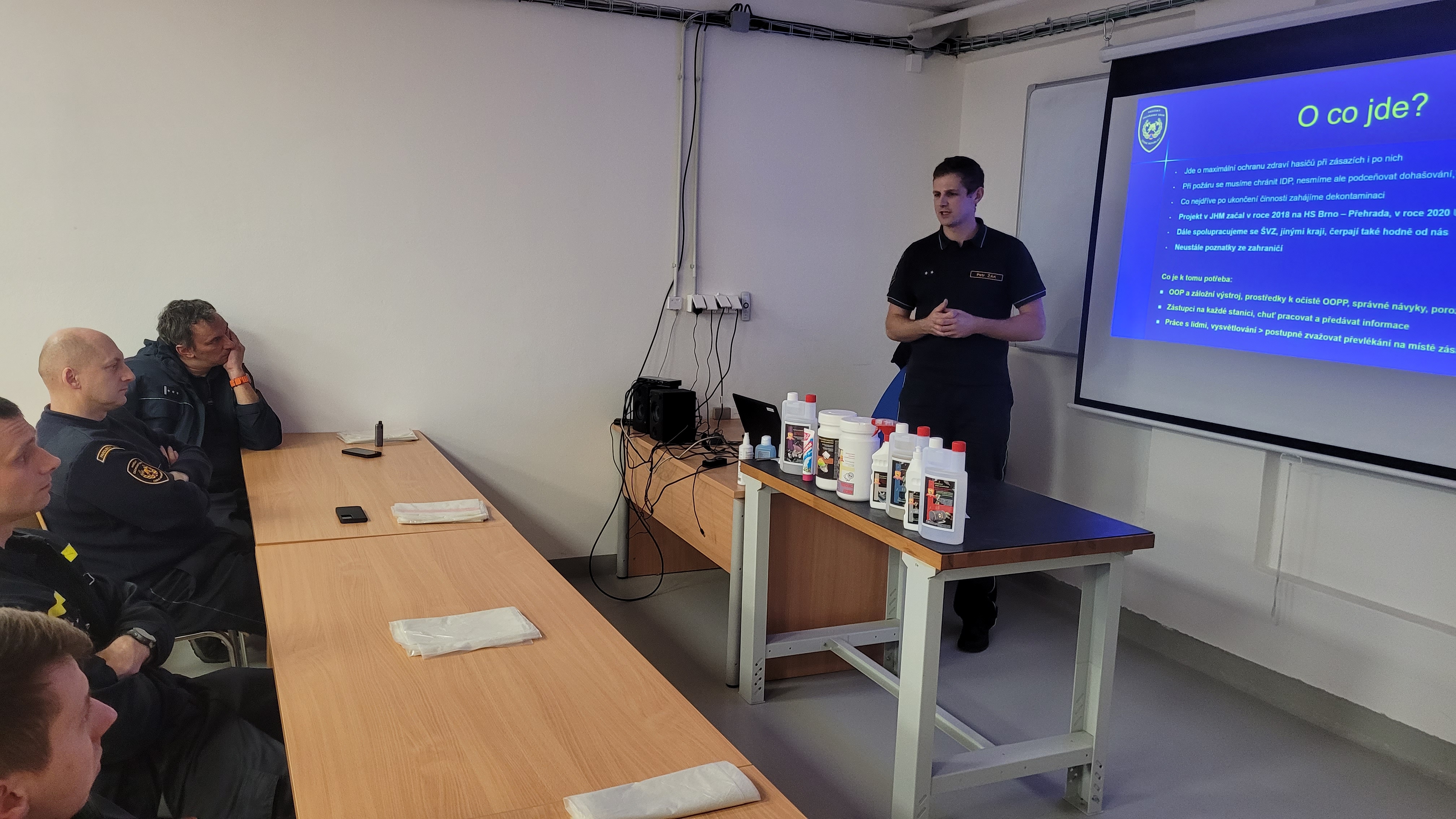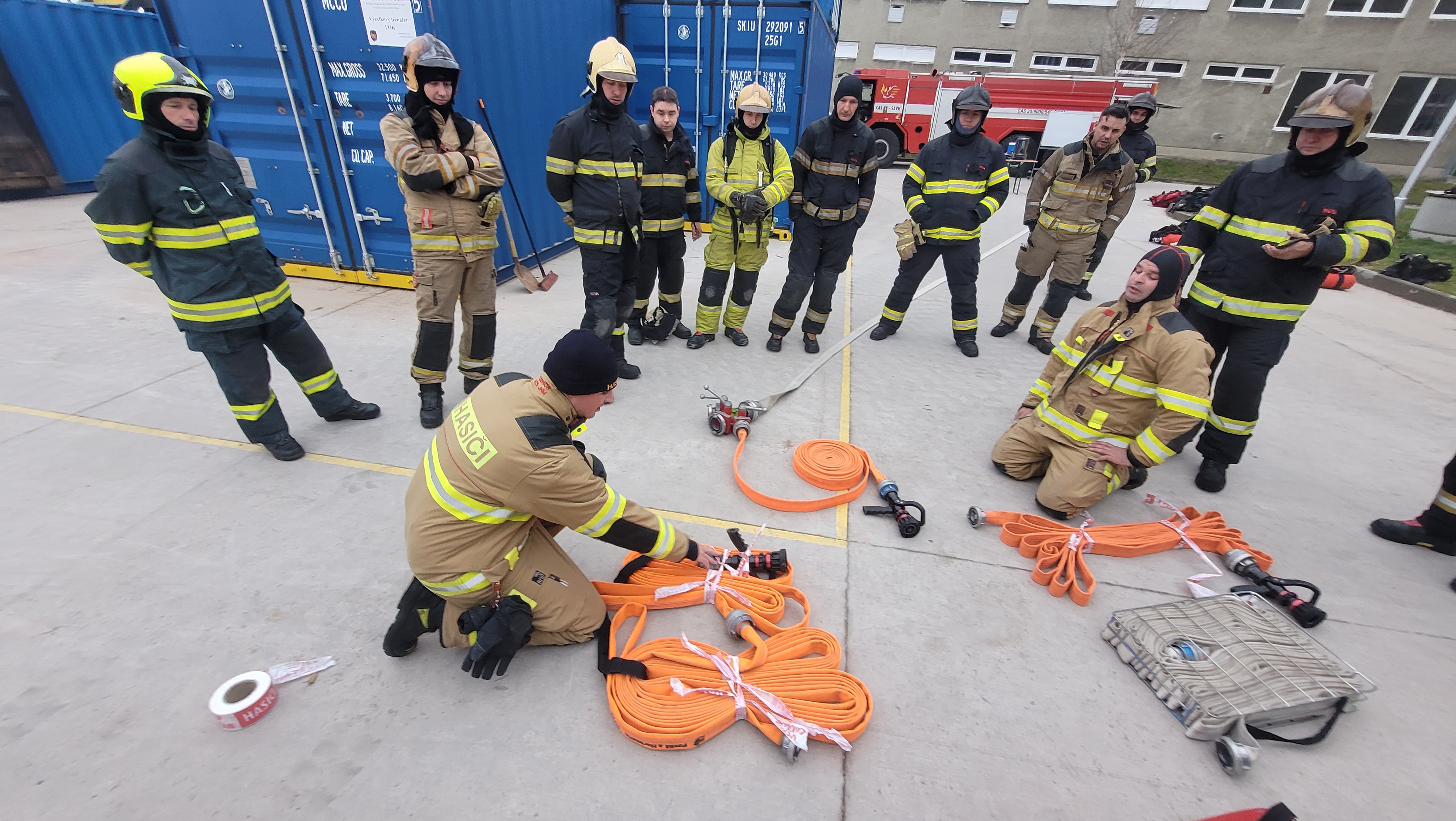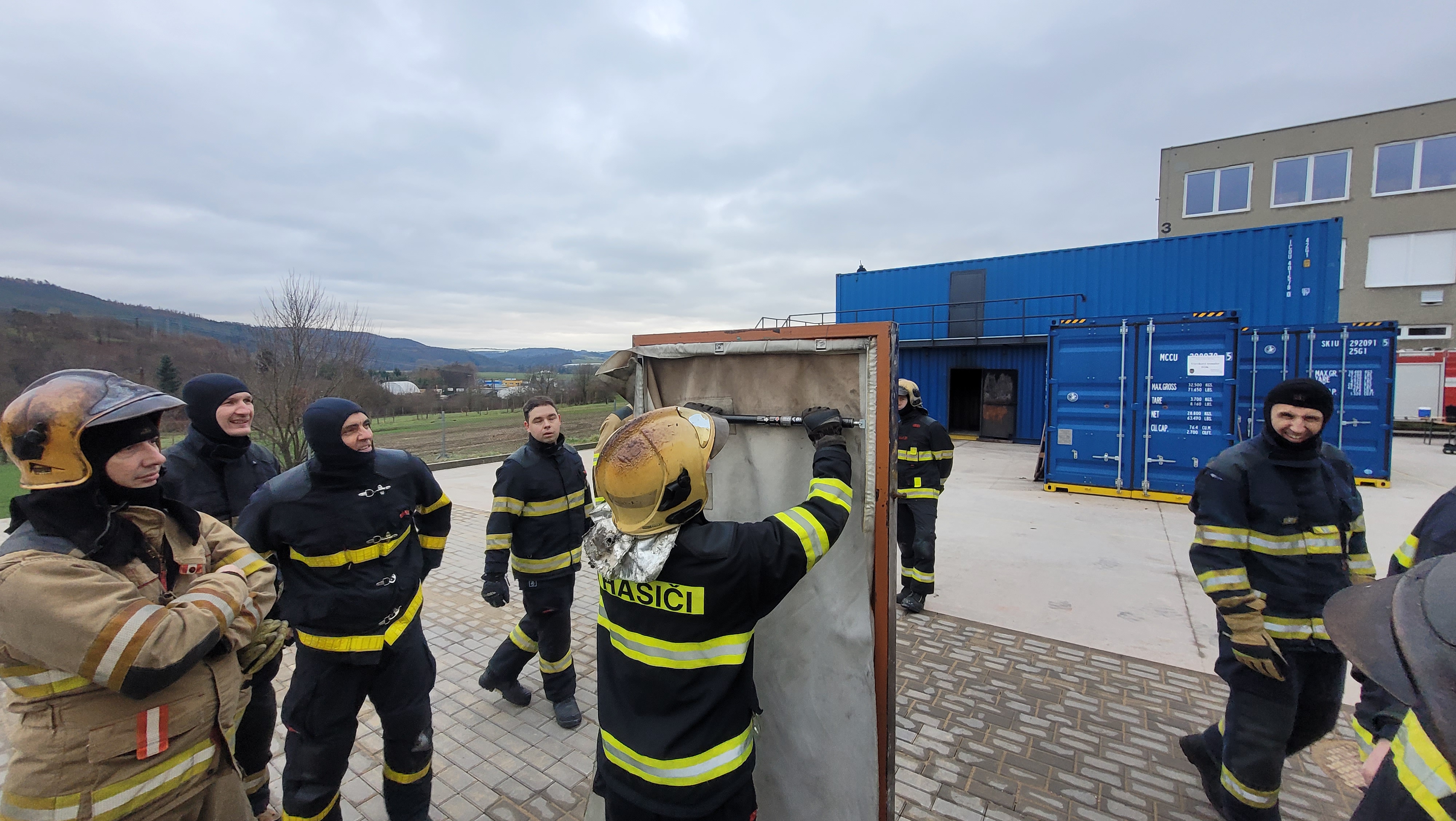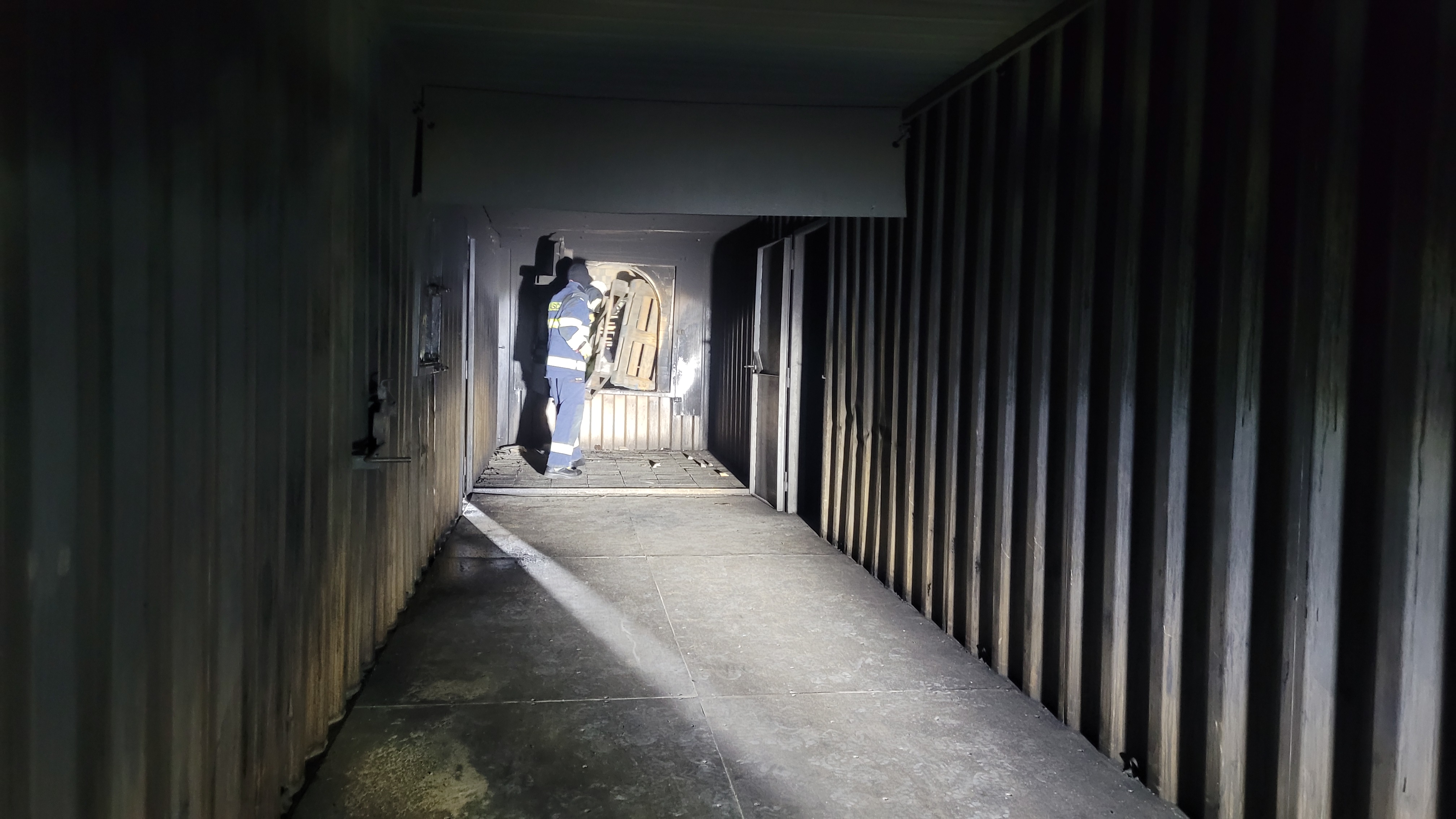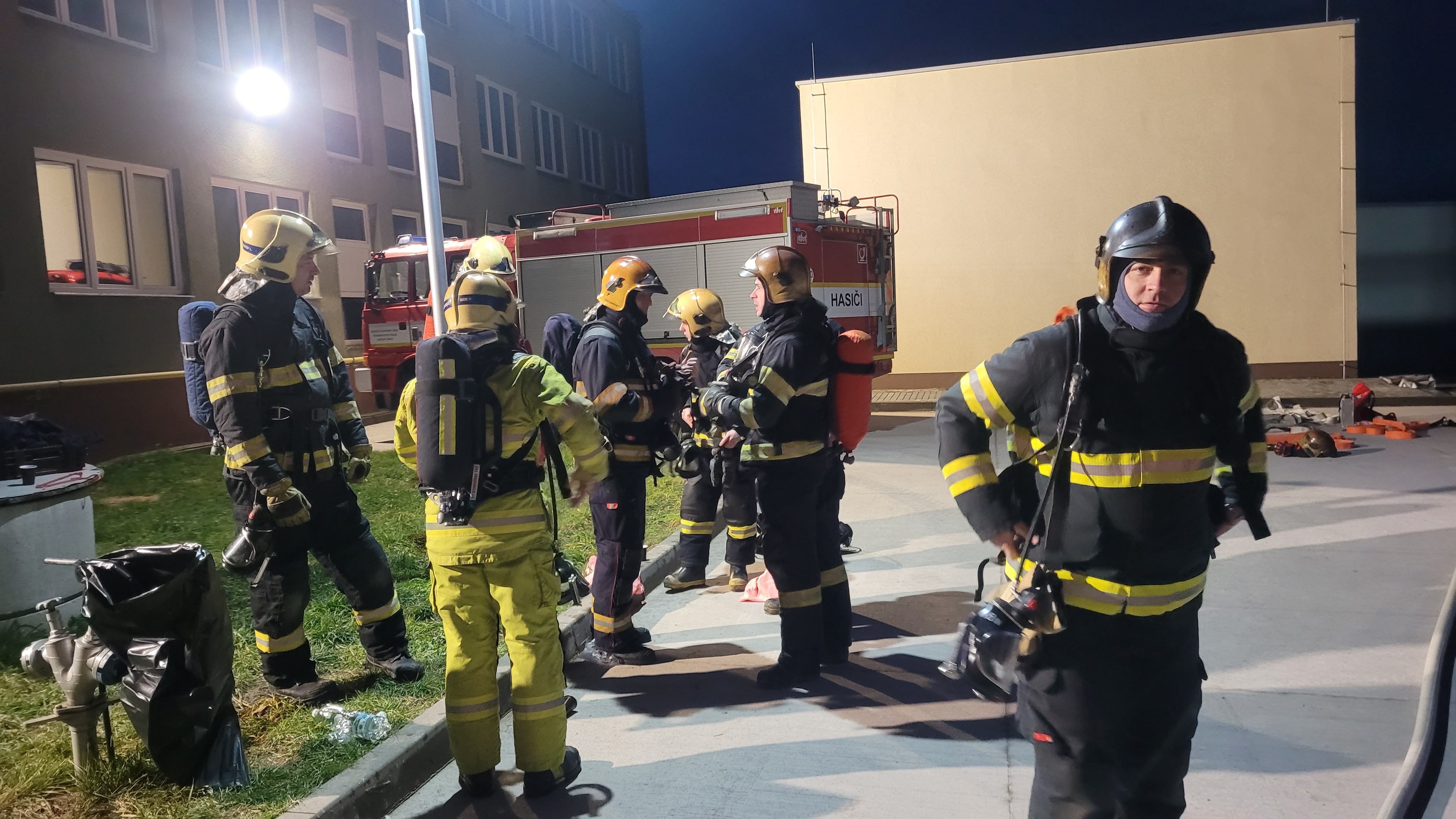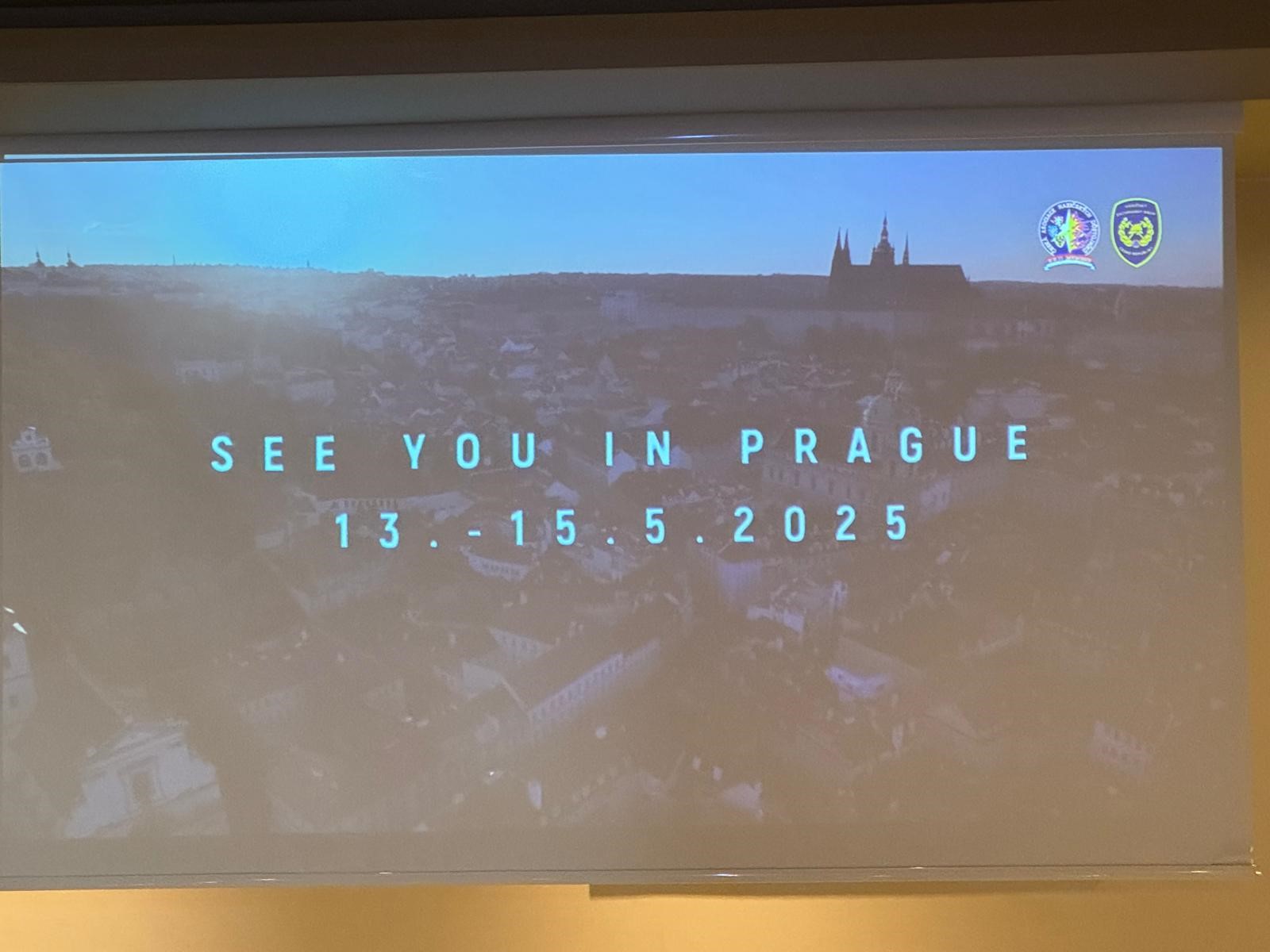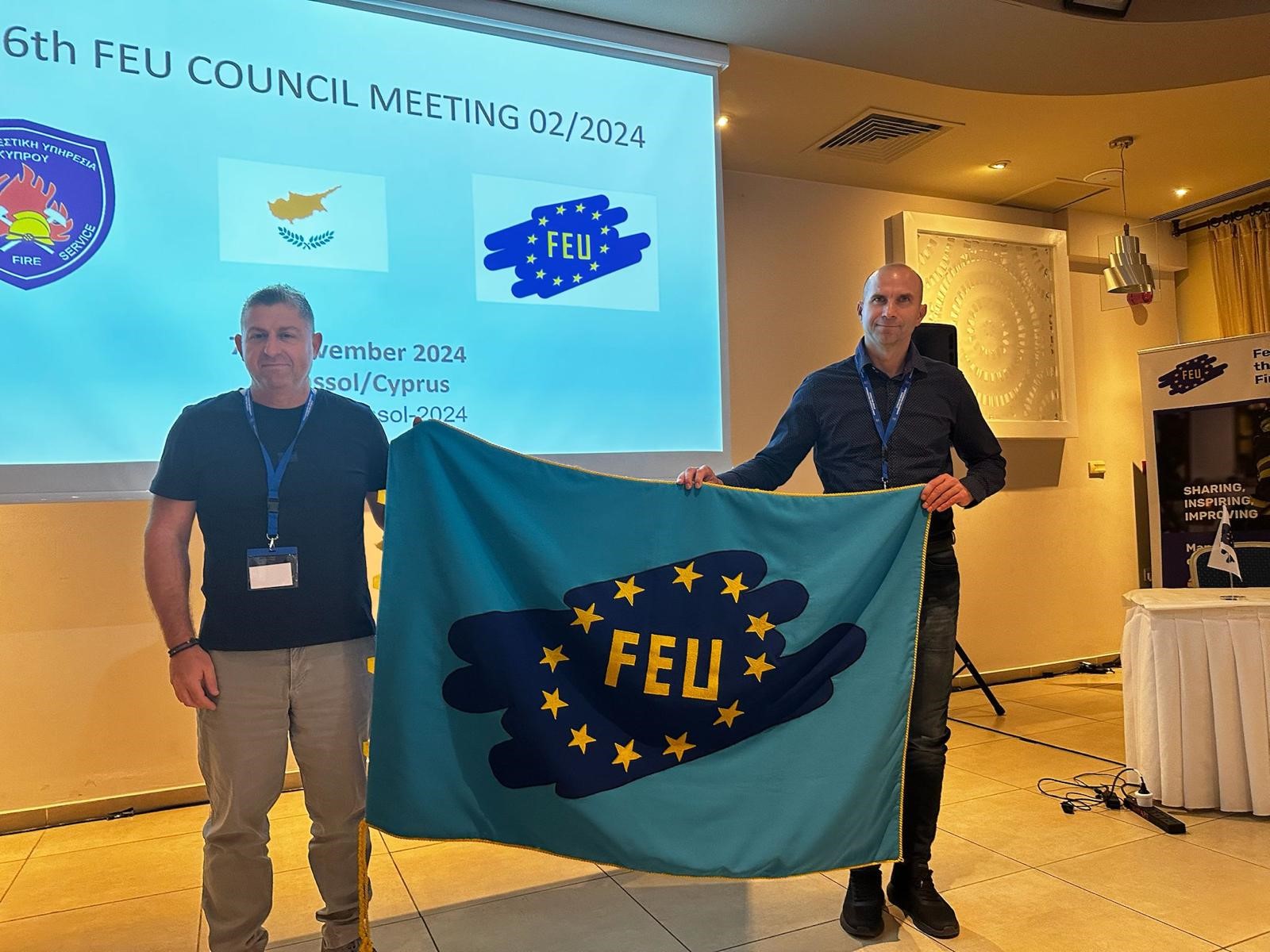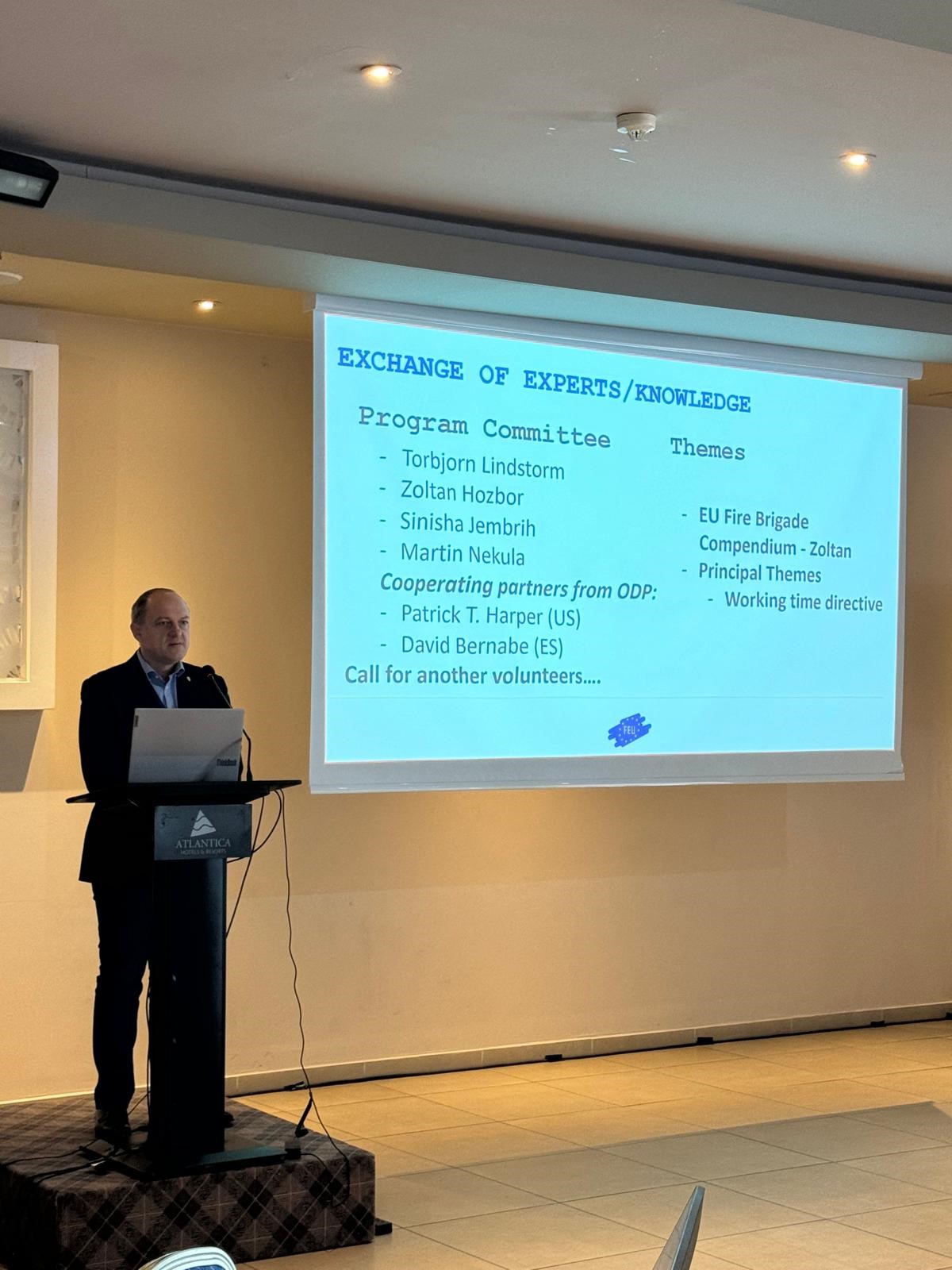DIREKTION: The next webinar “Ensuring Connectivity in Crisis: Resilient Communications for Responders”
The next DIREKTION webinar “Ensuring Connectivity in Crisis: Resilient Communications for Responders” will take place on January 23rd at 11 AM.
- Website news: https://www.direktion-network.org/post/direktion-webinar-ensuring-connectivity-in-crisis-resilient-communications-for-responders
- LinkedIn post: https://www.linkedin.com/feed/update/urn:li:activity:7414705259966787584
- Newsletter: https://sh1.sendinblue.com/algvyb9a4lpfe.html?t=1767863107331
- Registration page: https://events.teams.microsoft.com/event/a33e0455-6211-480f-a1dc-1cb8b3586a3e@f673c940-d627-419f-86a7-cb460eca8be6
News
News
News
News
News
News
News
DIREKTION WEBINAR "Virtual Reality for First Responder Training: Current Innovations & Future Trends"
Join us for this interactive webinar hosted by DIREKTION and the CMINE DRS Stakeholder Hub to explore how virtual reality technologies are transforming the way first responders train, simulate complex scenarios, and engage with high-risk environments — safely, effectively, and at scale.
This session will bring together technology providers, researchers, and practitioners to share real-world use cases, lessons learned, and forward-looking perspectives on the role of VR in disaster risk management and emergency preparedness.


European fire officers celebrate 30 years of cooperation – Prague hosted the annual seminar and FEU Council meeting
On May 14–15, 2025, the capital city of the Czech Republic hosted a major international gathering of representatives from European fire services to mark the 30th anniversary of the founding of the Federation of European Fire Officers (FEU). The two-day event, held at the Hotel International, combined a professional seminar focused on the use of data and artificial intelligence in emergency services with the formal meeting of the FEU Council. The entire event was organized by the Czech Association of Fire Officers (ČAHD) in cooperation with the General Directorate of the Fire Rescue Service of the Czech Republic.
The opening day of the program was dedicated to a professional seminar named Data-driven Fire and Rescue Services, which focused on the use of data, technology and artificial intelligence in fire protection and crisis management. The seminar was ceremonially opened by Deputy Minister of the Interior Radek Kaňa, General Director of the Fire Rescue Service of the Czech Republic Vladimír Vlček, and FEU President Stephan Wevers. In their addresses, they welcomed the delegates, outlined the main priorities of the organization, and emphasized the importance of international cooperation and technological advancement.
As part of the professional program, the following speakers gave presentations:
- Jiří Studnička (Czech Republic) – Presentation of the Hawk system for analyzing visual footage from emergency operations
- Andreas Bierfert (Germany) – Data security and GDPR compliance
- Laura Verhulst (Belgium) – Use of GIS technologies in fire prevention
- Jørgen Hauge Skogmo (Norway) – Data support in air rescue services
The afternoon program offered interactive discussion workshops focused on sharing experiences in the areas of digitalization, cross-border cooperation, and strengthening community resilience.
The second day was dedicated to the formal meeting of the FEU Council, where a draft of the new federation strategy for the 2026–2030 period was presented. The discussion focused, among other things, on:
- Updating expert exchange programs
- Presenting the upcoming anniversary publication documenting 30 years of FEU
- The impact of European legislation on fire service professions, including the issue of working hours
The meeting was also complemented by inspiring presentations:
- Donatas Gurevičius (Lithuania) – Transformation of the Lithuanian Fire Service
- Marco Martins (Portugal) – Response coordination during a large-scale power outage
The final item on the program was the ceremonial handover of the FEU flag to Austria, which will host the next meeting in November 2025 in Vienna.
The Federation of European Fire Officers (FEU) was founded in 1995 and brings together senior representatives of fire and rescue services from across Europe. Its mission is to promote professional exchange, harmonize standards, coordinate training programs and strengthen the position of fire officers within European structures. Currently, the FEU has members from more than 20 European countries and actively cooperates with international partners, including the International Association of Fire Chiefs (IAFC) and the Organización de Bomberos Americanos (OBA).
28th Regular Assembly of the Czech Association of Fire Officers (CAFO) Held in Brno
On March 21, 2025, the 28th regular Assembly of CAFO took place at the The Fire Service College of the Czech Republic in Brno. The event focused on key topics related to the association’s activities, elections to the CAFO Council and Supervisory Board, and the admission of new members.
At the beginning of the Assembly, CAFO had 195 members. With 83 present and 48 represented by proxy, and after admitting 12 new members, the total membership rose to 207, with 135 mandates represented.
The Assembly was opened by CAFO President Karel Kolářík. Guests included representatives from the Slovak Association of Fire Officers, Firefighters' Union of Bohemia, Moravia and Silesia, the Ministry of the Interior - General Directorate of the Fire Rescue Service, the Technical University of Ostrava, the Association of Commanders of Enterprise Fire and Rescue Services, Association of Commanders of Voluntary Fire Brigades and others. A moment of silence was held in memory of CAFO member Ing. Oldřich Jedlička.
Following program approval and the election of the mandates, proposals, and election committees, the Assembly officially admitted new members. Reports covered international cooperation, prevention, technical matters, IT, and finance. Attention was given to projects like SMOKE ALARM DAYS, RiskPacc, and DIREKTION.
In the elections, Karel Kolářík was re-elected President, and Martin Nekula was re-elected Vice President. Heads of expert groups were elected: Martin Pliska (Prevention & Civil Protection), Marek Sobek (Repression & IRS), Pavel Thin (Technical Activities), and Jonáš Vachta (IT). Kristina Bystřická was elected Treasurer. Jarmila Čičmanová stepped down as Chair of the Supervisory Board, replaced by Zdeněk Bělík as the member of the Supervisory Board.
Members were also honored for their contributions. The CAFO Medal II Class was awarded to Václav Aubrecht, Radim Mrázek, Marek Ratiborský, Zoltán Szaszo, Radek Zapletal, and Pavel Thin. Medal III Class went to Libor Dušek, Zdeněk Jalůvka, Tomáš Koval, Petr Navrátil, Pavel Nejtek, and Jiří Patrovský. František Hep received honorary membership, and Jiří Horáček received the Honorary President of CAFO title given last year.
In the discussion, prominent guests addressed current issues in fire protection and legislation. Zdeněk Nytra spoke about the impact of military law on recruitment, EU association statute changes, and the Working Time Directive. Petr Ošlejšek discussed changes to the Fire Protection Act and service regulations, firefighter shifts, and CBRNE warehouse development.
Jiří Pokorný thanked partners and highlighted support from SPBI President Lenka Černá and initiatives like real-time flood prediction and the cooperation of the University with the Fire Rescue Service. CAFO’s work was praised by Vasil Silvestr Pekar (President of the Czech Fire Union), Pavol Dubaj (President of SAFO), Pavel Holý (President of the Association of Commanders of Enterprise Fire and Rescue Services), and Ondřej Novák (Association of Commanders of Voluntary Fire Brigades).
The 2025 budget was approved, and future plans in education, cooperation, and international projects were discussed. CAFO continues to fulfill its mission of strengthening readiness, knowledge, and professionalism in fire protection and rescue services.
News
RTC Policy Brief
RTC Policy Brief
In an era of increasingly complex and unpredictable crises, the Responder Technology Cluster (RTC) presents a new Policy Brief designed to shape the future of European disaster resilience.
Launched at the CERIS Event on March 27, 2025, this brief gathers insights from over 200 organisations and 17 EU-funded projects. It sets out practical recommendations to ensure that research and innovation (R&I) directly translate into effective, usable, and scalable solutions for emergency responders.
What's inside the Policy Brief?
The Policy Brief explores how Europe can strengthen the technological and operational capabilities of first responders through a capability-driven, forward-looking approach.
Key themes include:
- Aligning research priorities with real-world responder needs
- Leveraging innovation procurement (e.g. PCP & PPI)
- Enhancing interoperability and standardisation
- Promoting ethical and user-friendly technologies
- Supporting training and community preparedness
Key Takeaways
The recommendations gathered in this policy brief address three key stakeholder groups: Emergency Responder Organisations, Policy Makers, and R&D and Solution Provider Sector. By working together in a coordinated manner, these groups will strengthen the capabilities of emergency responders with technological or organisational innovative solutions, enabling them to better face current and future disasters.
See more at the DIREKTION website:
News
News
SEMINAR FLASHOVER CONTAINERS 2024
On 9 and 10 December
2024 took place in the premises of the Training Facility of the South Moravian Region Tišnov
the twelfth annual seminar Flashover containers. The seminar was organized by the Czech Association of
Firefighting Officers, z.s., in cooperation with the Ministry of Interior - General Directorate of Firefighting
Rescue Corps of the Czech Republic (DG Fire and Rescue Service of the Czech Republic) with significant assistance of the Fire and Rescue Service of the Czech Republic
South Moravian Region. DG Fire Brigade of the Czech Republic supported the event with its grant. The seminar is
traditional meeting of the main trainers of equipment simulating real conditions fire.
The aim of the seminar is to exchange
experience among the lecturers and further development of the issues of fire intervention
in confined spaces in the Czech Republic.
For the introduction of the seminar it was possible to
lecturers of the Fire Brigade of the Zlín Region arranged a videoconference lecture by Prof. Dr.
Michael Reick, the author of the patent for the portable smoke screen. Portable smoke shelters
smoke screens have gradually been incorporated into their equipment by the vast majority of fire brigades
in Germany and gradually spread throughout the world. Members of the Fire Brigade
Zlín Region have been with Prof. Dr. Reick and his colleagues for a long time.
in contact. The lecture was focused on tactics of fire intervention
in a closed environment and the general spread of smoke. The presentation also included
an explanation of the tactical options for deploying portable smoke screens.
The next part of the seminar was devoted to practical training in a newly built facility simulating real fire conditions of the South Moravian Fire Service. The complex of the training facility in Tišnov offers very good conditions for training. The facilities in the form of classrooms, a chemical service workshop and sanitary facilities are of top quality. The actual flashover container is based on the experience of older facilities of the Fire Brigade of the Czech Republic and moves the level further again. Similarly to the Liberec Region Fire Brigade facility in Raspenava, the new flashover container offers space for comprehensive training in fire response in confined spaces. Colleagues from Tišnov managed to use the best tested technical solutions and further develop the spatial arrangement. The facility of the South Moravian Fire Brigade is currently the best wood-burning flashover container in the Czech Republic and could become a model for the construction of others in other regions. During the practical training, the technique of working with the firefighting machine was discussed. It was also possible to try a new technique of transitional attack in the container. Another point of discussion was modern hose management methods. The lecturers exchanged experiences with spiral hose stowage, rewinding hoses from the harmonic to the spiral.
The functionality of different types of hose baskets was also evaluated. The discussion concluded that it will be necessary to respond to these new trends in the construction of new CAS and the specification of in-kind resources. It would be advisable to create space for the storage of C-coil hoses and to consider the form and size of hose baskets. The hose baskets should allow the entire C hose to be removed in an accordion so that it can be easily rewound into the spiral. In addition, this design of hose baskets will also allow them to be used for transporting hoses in a reel, thereby increasing the utility value of the baskets. The actual size of the baskets was encountered by the trainers during a practical demonstration of the deployment of a portable smoke screen. The usual stowage of the screen in Germany is by clipping it to the hose basket. This solution ensures that the screen is brought more or less out of the way together with the hoses at the place of use. Currently, Czech baskets differ in size from German baskets, so this procedure cannot be applied in our environment. The smoke screen itself has been tested practically. First, the lecturers of the Fire Brigade of the Zlín Region demonstrated the actual handling of the smoke screen and then tested it in the container against smoke and flames. The apron surprised with its durability.
The second day of the seminar was devoted to the draft of a new instruction of the DG Fire Brigade of the Czech Republic for equipment simulating real fire conditions, virtual reality and a practical demonstration of the Clean Firefighter project of the South Moravian Fire Brigade.
The lecturers were familiarized with the process of work on the amendment to the instruction regulating the operation of equipment simulating real fire conditions. The amendment is based on the discussion of the lecturers of flashover containers. The aim of the amendment is to unify the procedures in the field of flashover containers with other disciplines and to set the rules to reflect the technical development of individual devices.
Also discussed were the possibilities of using virtual reality in confined space firefighting training. A survey of all known software solutions in this field was presented. The company Centre for Safe State presented to the lecturers the VR FOK programme, which was developed within the framework of the Security Research Project of the Ministry of the Interior of the Czech Republic. The lecturers discussed with the author the fidelity of the visual representation of flames and the reaction of flames to the use of a jet engine. The lecturers positively evaluated the possibility of practicing the work with the nozzle in a virtual environment.
At the end of the seminar, members of the South Moravian Fire Brigade presented the Clean Firefighter project. The lecturers practically tested the cleaning of personal protective equipment from the previous day. The flashover container lecturers approach the risk of exposure in a hazardous environment very cautiously and are aware of the risks associated with activities in containers, therefore the actual cleaning of the firefighter was an important topic for further discussion within the collective of experts. Colleagues from the Fire Brigade of the South Moravian Region openly provided all the information they had managed to gather.
The seminar provided the lecturers with a valuable opportunity to meet and exchange experiences. The level of the meeting was high and very positively evaluated by all participants.
News
Representatives of the Czech Association of Fire Officers attented meetings of working groups and commission of the CTIF
From December 2024 to February 2025, representatives of the Czech Association of Fire Officers (CAFO) attended online meetings of the working groups and commission of the CTIF, the international federation of fire and rescue services. Specifically, they participated in the Fire Investigation Working Group, Tunnel Fires Working Group, and Fire Prevention Commission. The meetings were chaired by CAFO Vice President Martin Nekula, who also serves as the Vice President of the CTIF. However, the Czech Republic was also represented by other CAFO members who were appointed to the working groups and commission by the Czech National Committee of the CTIF. The key topics of the meetings included the reestablishment of the groups, appointment of their chairpersons, and planning in-person meetings of the representatives. Two of these meetings will take place in the autumn in the Czech Republic. Jiří Studnička from the Directorate General of the Fire Rescue Service of the Czech Republic introduced international representatives to the HAWK system, which was developed to provide a comprehensive and structured overview of interventions and incidents, such as fires or other emergency situations. The discussions emphasized the importance of mutual cross-border cooperation, information sharing, and experience exchange, as certain areas—especially fire investigation—differ across countries. International cooperation is therefore essential for their further development.
Project DIREKTION Executive reports release
We are pleased to announce the release of two key executive reports that highlight the main outcomes and conclusions of our latest work.
Odkaz:
https://www.direktion-network.org/post/direktion-executive-reports-release
News
News
News
News
Project DIREKTION at the One-Year Mark: Key Achievements and Next Steps
Meeting Federation of EUropean fire officers
From November 6 to 8, 2024, the regular FEU Council meeting of members of the Federation of European Fire Officers (FEU) took place, this time in Limassol, Cyprus. The FEU is the independent professional body of European fire officer associations or state fire services (including UK and Norway) whose members are senior professionals that have responsibility for strategic management of the Fire and Rescue Services in their respective countries. One of the main topics discussed was the recruitment of new firefighters, with representatives presenting the conditions and processes involved in firefighter recruitment in their respective countries. A key part of the meeting also included presentations on other current issues, including the Czech Association of Fire Officers' report on the floods that affected the Czech Republic. Additionally, discussions covered other major emergencies that have significant cross-border impacts and influence the direction of national policies, especially in the areas of prevention and response. The Czech Association of Fire Officers also updated participants on the latest developments related to the DIREKTION project and the FEU Exchange of Experts program. There was also a discussion on the Working Time Directive and related issues. The next FEU meeting will be held from May 13 to 15, 2025, in Prague, organized by the Czech Association of Fire Officers. This meeting will also mark the 30th anniversary of the founding of the FEU. A ceremonial act at the end of the meeting commemorated this milestone, with representatives of the Czech Association of Fire Officers receiving the FEU flag.
The meeting was also covered by other media outlets. For more information, please refer to https://internationalfireandsafetyjournal.com/feu-suggests-recruitment-and-retention-strategies-for-european-fire-departments/
News
News
News
CTIF has recently released its latest statistical data
The International Association of Fire and Rescue Services (CTIF) has recently released its latest statistical data on its official website. The newly published statistics offer a comprehensive overview of global fire and rescue incidents, providing valuable insights into the frequency, causes, and outcomes of such events across different regions.
The data includes detailed analyses of various aspects such as the number of fire incidents, types of fires, response times, and the effectiveness of different firefighting strategies. Additionally, it highlights significant trends and changes compared to previous years, offering a clear picture of the current state of fire and rescue services worldwide.
For more detailed information, click here
News
News
CAFO shares the official statement of CTIF
CTIF Addressing the Climate Crisis: A Call to Action for Fire and Rescue Services Worldwide.
Professional Firefighter (HSE-FRS-OP-2024-35-LD)
At CERN, the European Organization for Nuclear Research, physicists and engineers are probing the fundamental structure of the universe. Using the world's largest and most complex scientific instruments, they study the basic constituents of matter - fundamental particles that are made to collide together at close to the speed of light. The process gives physicists clues about how particles interact, and provides insights into the fundamental laws of nature. Find out more on http://home.cern.
Job Description
Introduction
Are you a professional firefighter seeking an exciting new opportunity? Are you intrigued by the idea of joining an international organization that offers a unique and enriching environment? No matter your family situation, we have an amazing opportunity for you.
Imagine working and learning in a cutting-edge, high-tech industrial setting, while also having the chance to share your expertise with firefighting professionals from 15 different countries. Our diverse and inclusive Fire and Rescue Service is dedicated to creating an environment where everyone feels valued and included. Apply for a job and take part!

